Honors
- Chancellor’s Medal
- Revelle Medal
- Medal Nominations
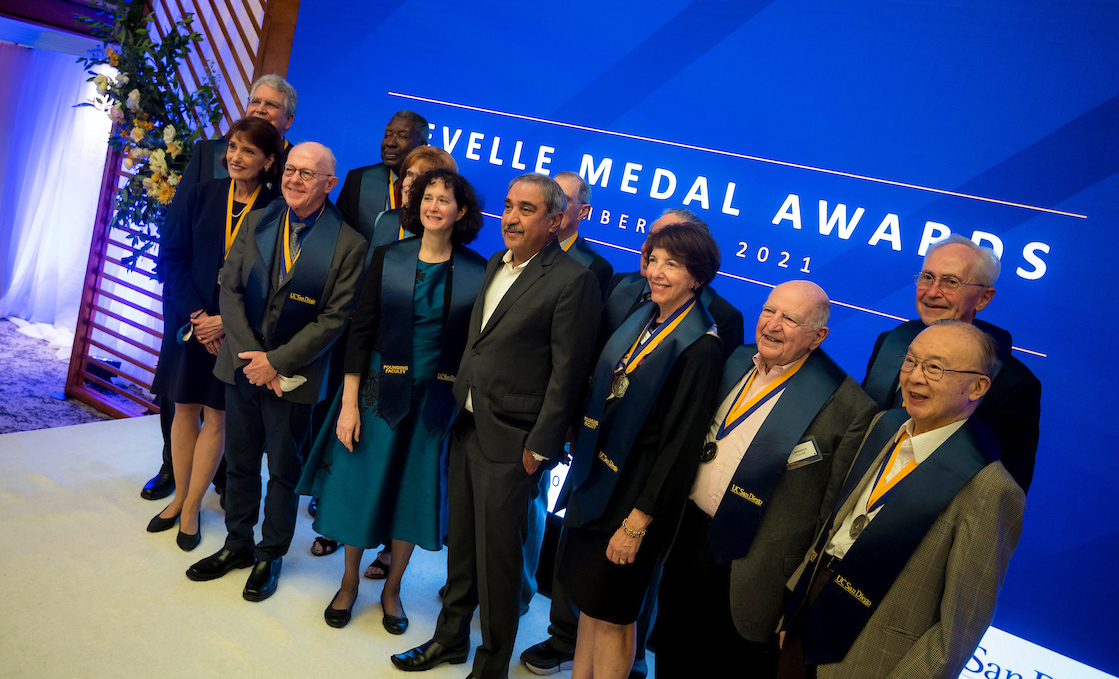
The Revelle Medal recognizes sustained, distinguished and extraordinary service to the campus. The recipient’s achievements are illustrative of UC San Diego founder Roger Revelle’s vision to attract distinctive and visionary faculty leaders. The Medal honors a record of accomplishment that advances UC San Diego in fulfillment of the campus mission of exceptional teaching, research, service and patient care.
Conceived in 1981 by Chancellor Richard C. Atkinson, the Revelle Medal was first awarded at the Atkinson inauguration. The medal had previously honored distinguished and sustained service to the campus but had excluded faculty or staff.
Recipients of the Revelle Medal are selected annually by a committee of previous honorees and recommended to the Chancellor. The selection committee serves a rotating three-year term.
The 2024-2026 Revelle Medal Selection Committee:
Nomination submissions for the 2025 Revelle Medal are due June 6, 2025.
Submit a Nomination Nomination Guidelines

Distinguished Professor Emeritus of Chemistry, Biochemistry, and Pharmacology and Distinguished Professor of the Graduate Division Edward A. Dennis is a leader in the field of lipidomics. His research has furthered understanding of the role lipids play in inflammation and numerous metabolic diseases. Most recently, his lab developed a noninvasive blood test to detect fatty liver disease, replacing the need for liver biopsies.
Dennis received his bachelor’s degree from Yale University and his master’s degree and doctorate from Harvard University. He has held visiting professorships at Harvard Medical School and Brandeis University and has been a long-standing adjunct professor at Scripps Research and visiting research professor at Sorbonne Université in France.
He has received numerous recognitions, including a Guggenheim Fellowship, the Yale Medal and the American Chemical Society Distinguished Scientist Award. Dennis has over 440 publications and his National Institutes of Health grant is now in its 49th year.

Distinguished Professor of Political Science David A. Lake is a leading scholar of international relations and political economy. He is the author of six books — including “Indirect Rule: The Making of U.S. International Hierarchy” (2024) — and more than 100 articles and book chapters. He has served as president of the American Political Science Association and the International Studies Association, co-edited the journal “International Organization” and founded the International Political Economy Society.
Lake joined UC San Diego in 1992 after earning his doctorate from Cornell University in 1984 and teaching at UCLA for nine years. His UC San Diego service includes associate dean of the School of Social Sciences, chair of the Department of Political Science and director of the Yankelovich Center for Social Science Research. Elected to the American Academy of Arts and Sciences, he has also been recognized with UC San Diego Chancellor’s Associates Awards for excellence in research and graduate education. Among his proudest contributions: serving on 97 dissertation committees, mentoring generations of doctoral students.

Watch the Maria "Mia" C. Savoia video
Dean Emeritus for Medical Education at UC San Diego School of Medicine Maria Savoia, M.D., is a tireless champion of medical education. She maintains clinical practice in the Division of Infectious Diseases and was instrumental in leading the development of the Atkinson Physician Assistant Education Program, which welcomed its second cohort of students this past summer.
Savoia speaks both nationally and internationally on topics related to medical education and infectious diseases. She received her medical degree from Harvard Medical School and completed her residency and fellowship training at UC San Diego. She held leadership positions in professional organizations including the National Residency Match Program, the American Medical Association and the Association of American Medical Colleges, who recognized her with its National Service Award. She also helped in the development of the Gold Humanism Honor Society, a national organization that recognizes students, residents and faculty who embody compassionate patient care and chaired its National Advisory Board.

Watch the Nicholas "Nick" C. Spitzer video
Distinguished Professor Emeritus of Neurobiology Nicholas C. Spitzer received his bachelor’s degree in biology from Harvard College and his doctorate in neurobiology from Harvard University. After postdoctoral work at Harvard and University College London, he joined the faculty at UC San Diego in 1972.
He has been chair of the Biology Department, as the School of Biological Sciences was previously known, as well as the Department of Neurobiology and the UC San Diego Academic Senate. He has also served as a member of the National Institutes of Health’s National Advisory Neurological Disorders and Stroke Council. Spitzer was founding editor-in-chief of BrainFacts.org and founding co-director of the Kavli Institute for Brain and Mind. He is a fellow of the American Association for the Advancement of Science and member of the American Academy of Arts and Sciences and the U.S. National Academy of Sciences. He was awarded the Karl Spencer Lashley Award and currently serves as president of the Society for Neuroscience.

Watch the Tony Lee Yaksh video
Distinguished Professor Emeritus of Anesthesiology and Pharmacology at UC San Diego School of Medicine Tony Yaksh is a widely regarded expert in the mechanisms of spinal pain management, which has been his research focus for more than 50 years.
Yaksh obtained his doctorate from Purdue University and served as a lieutenant in the U.S. Army Chemical Corps. Prior to coming to UC San Diego in 1988, he was a professor at the Mayo Clinic. Throughout his career, Yaksh has been continuously involved in National Institutes of Health-supported research on the mechanisms of pain and analgesia, publishing more than 900 papers and serving as a mentor for more than 160 fellows. He has been recognized with several prestigious honors including the American Society of Anesthesiologists Award for Excellence in Research and the John J. Bonica Prize for Distinguished Lifetime Achievement in the Basic Science of Pain from the International Association for the Study of Pain.
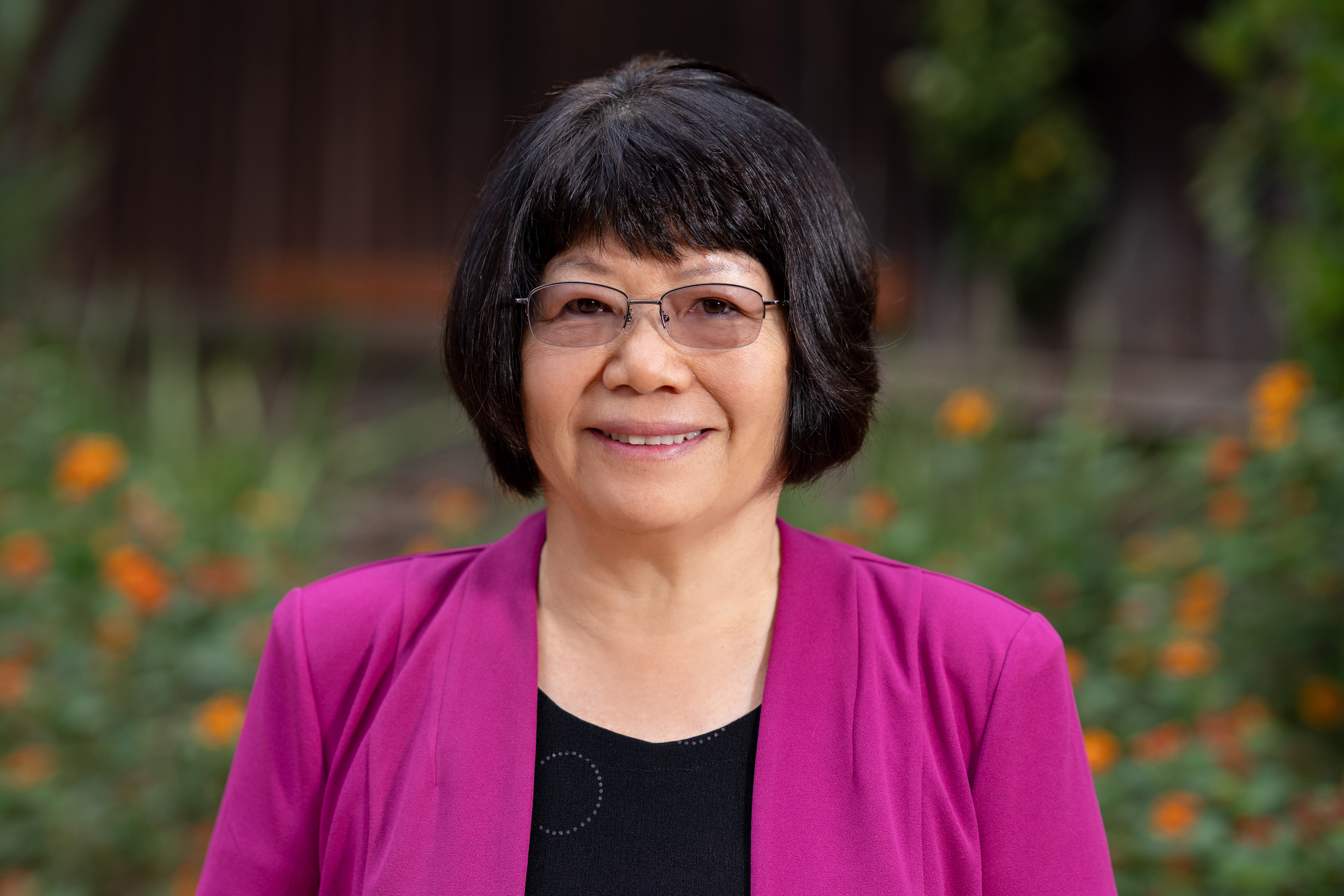
Watch the Fan Chung Graham video
Distinguished Professor Emerita of Mathematics and Computer Science & Engineering Fan Chung Graham holds the Paul Erdös Chair in Combinatorics at UC San Diego. She earned her doctorate from the University of Pennsylvania and her bachelor’s degree from the National Taiwan University. She worked at Bell Laboratories before joining the faculty of the University of Pennsylvania as the first female tenured professor in mathematics. Her research interests are in graph theory, combinatorics and algorithmic design.
She has authored more than 240 papers and coauthored the book “Erdös on Graphs” with her late husband, Ron Graham. Chung Graham is a member of the National Academy of Sciences and the American Academy of Arts and Sciences. She is also a fellow of the American Association for the Advancement of Science and the American Mathematics Society among others. Chung received the Euler Medal in 2017 and the Allendoerfer Award in 1990. She serves as editor-in-chief of the Journal of Combinatorics.
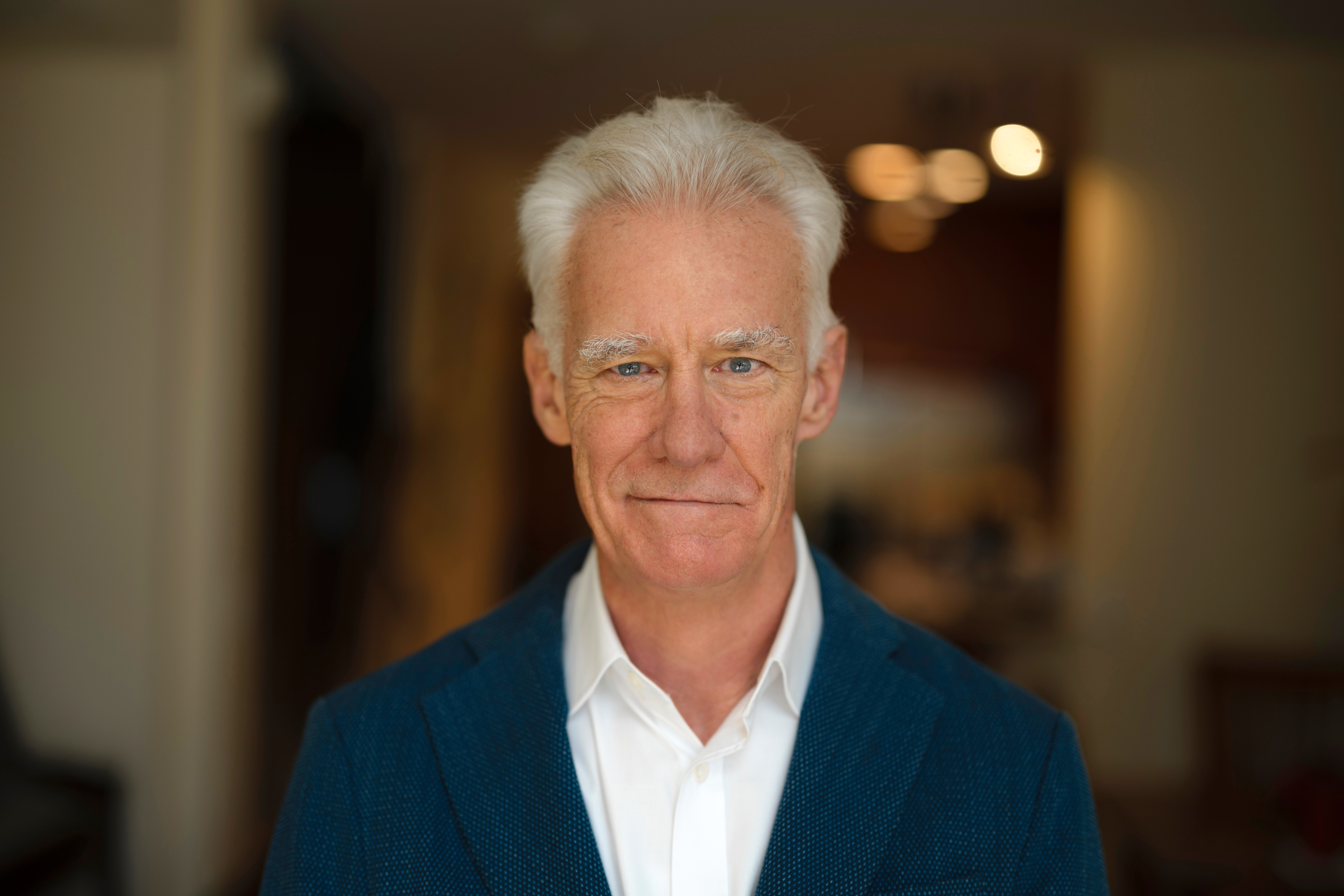
Watch the Stephan "Steph" Haggard video
Distinguished Research Professor at the School of Global Policy and Strategy Stephan Haggard is a world-renowned scholar in the fields of international relations, comparative politics and political economy. Recently elected to the American Academy of Arts and Sciences, Haggard has more than 140 peer-reviewed works translated into five languages, including ten books.
His research has expanded our understanding of the political economy of the Asia-Pacific, including the rapid growth of the newly industrializing countries and their experience with financial crises and current security challenges. He has made particular contributions with respect to the Korean peninsula, including both North and South Korea. A second body of his work focuses on transitions to and from democratic rule including the process of democratic backsliding. He is the research director for democracy and global governance at the UC Institute on Global Conflict and Cooperation, where his work centers on illiberal regimes and global governance.
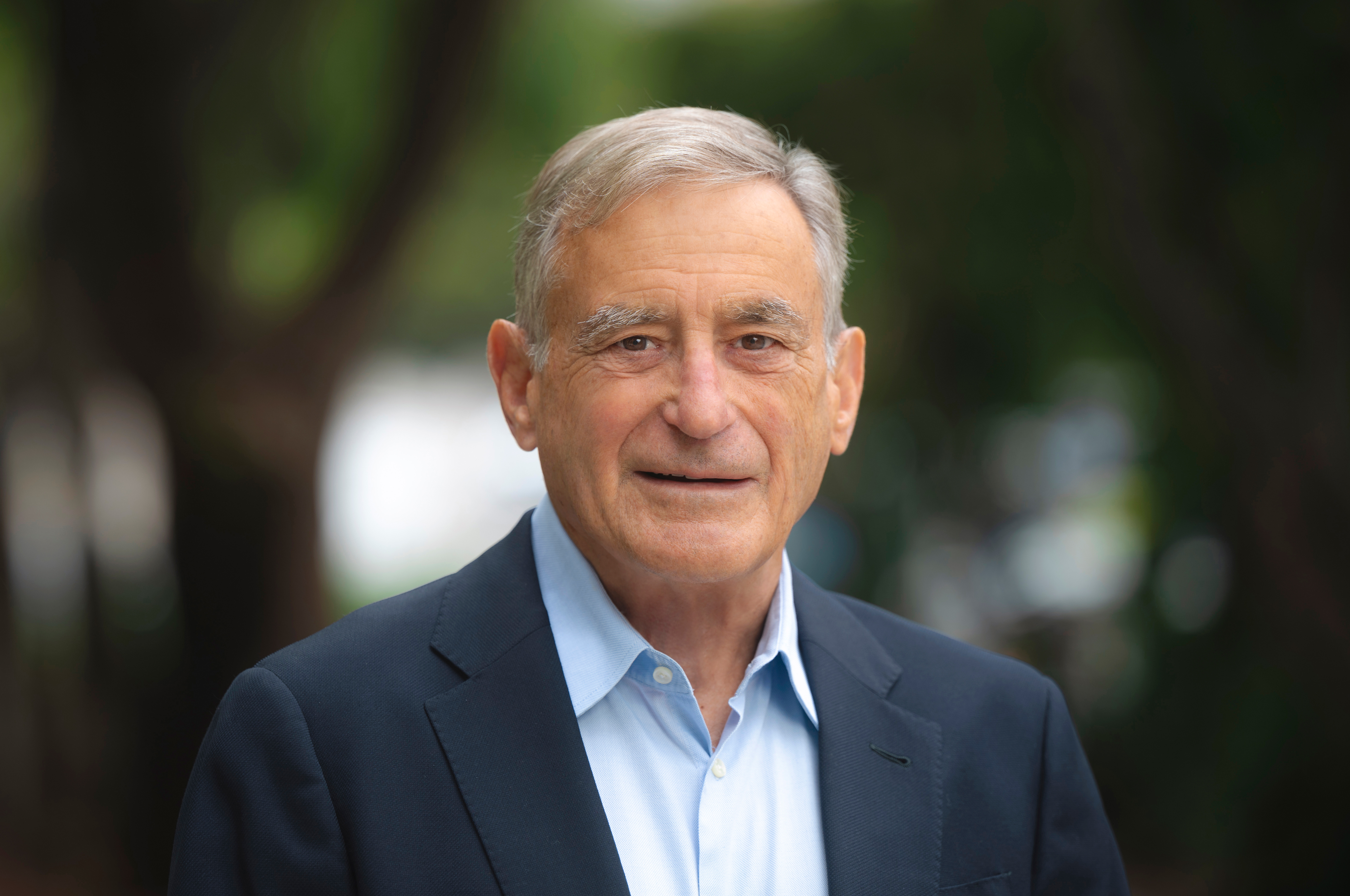
Watch the Douglas Richman video
Distinguished Professor Emeritus of Pathology and Medicine Dr. Douglas Richman is a renowned medical virologist and infectious disease physician. With a career spanning nearly half a century at UC San Diego, he has made groundbreaking contributions to the understanding and treatment of influenza virus, herpesviruses, filoviruses and HIV. He was a leader in the development of most of the antiretroviral drugs and treatment strategies during the first decades of the AIDS epidemic, and his lab was the first to identify HIV drug resistance. In addition to his interest in HIV treatment and drug resistance, his research has also focused on HIV pathogenesis, including the issues of viral latency and evolution.
Dr. Richman’s groundbreaking work has led to the creation of several research programs at UC San Diego including the Center for AIDS Research, the HIV Institute and the Antiviral Research Center.
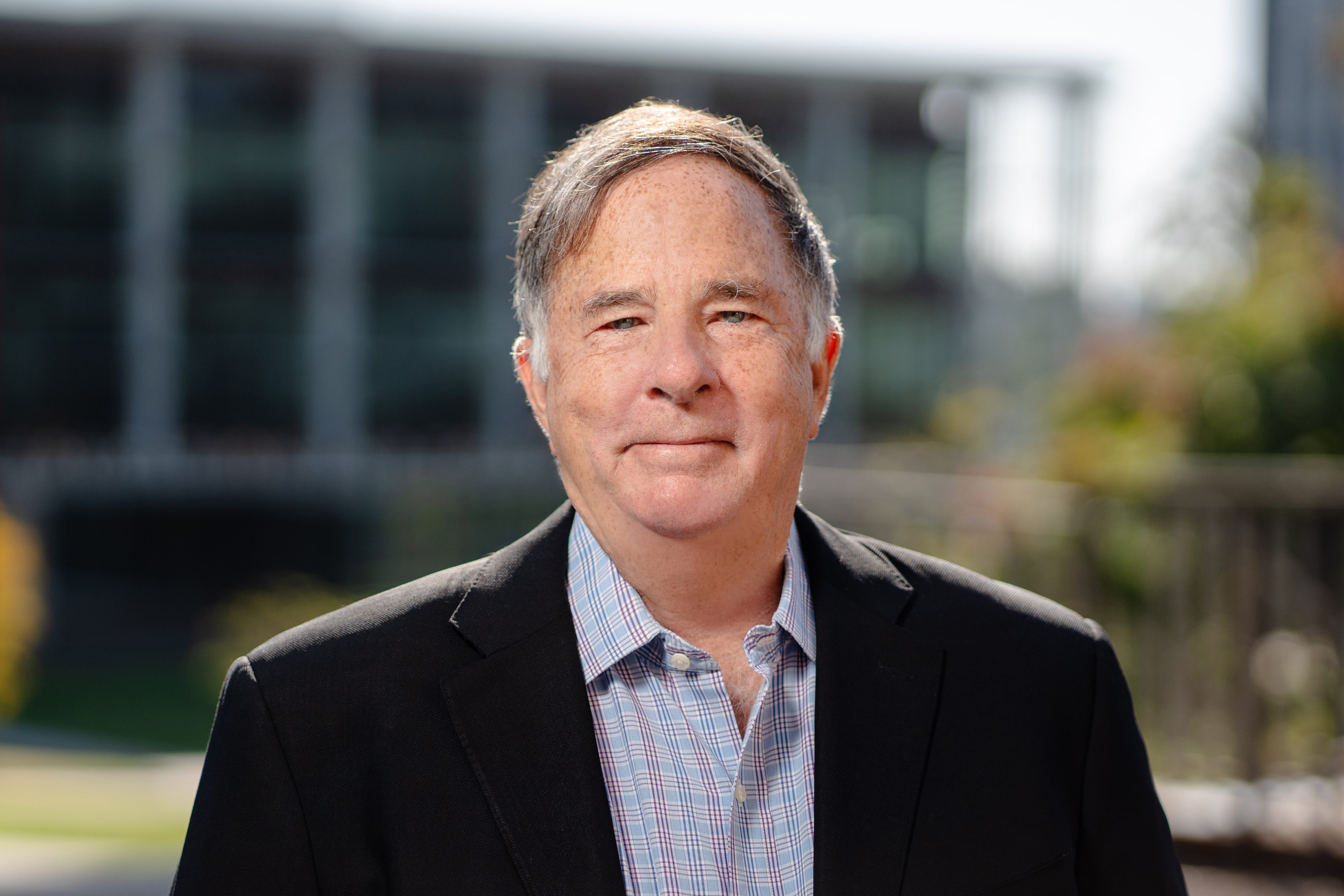
Watch the Robert "Chip" Schooley video
Dr. Robert "Chip" T. Schooley, a distinguished professor emeritus of medicine at the UC San Diego School of Medicine, is a leading expert in infectious disease. Throughout his 48-year career, he made significant contributions to the prevention and treatment of some of the most serious infectious diseases of our time, including HIV, and has been recognized for his work in international research and global health.
Previously holding positions at Harvard University and the University of Colorado, he joined the university in 2005. He was instrumental in the creation of the International Core of the San Diego Center for AIDS Research, the Center for Innovative Phage Applications and Therapy, and a collaborative medical training and research program between UC San Diego and Eduardo Mondlane University in Mozambique. In addition, he led the development of innovative solutions to public health crises, including the Return to Learn Program, which was the university’s response to the COVID-19 pandemic.
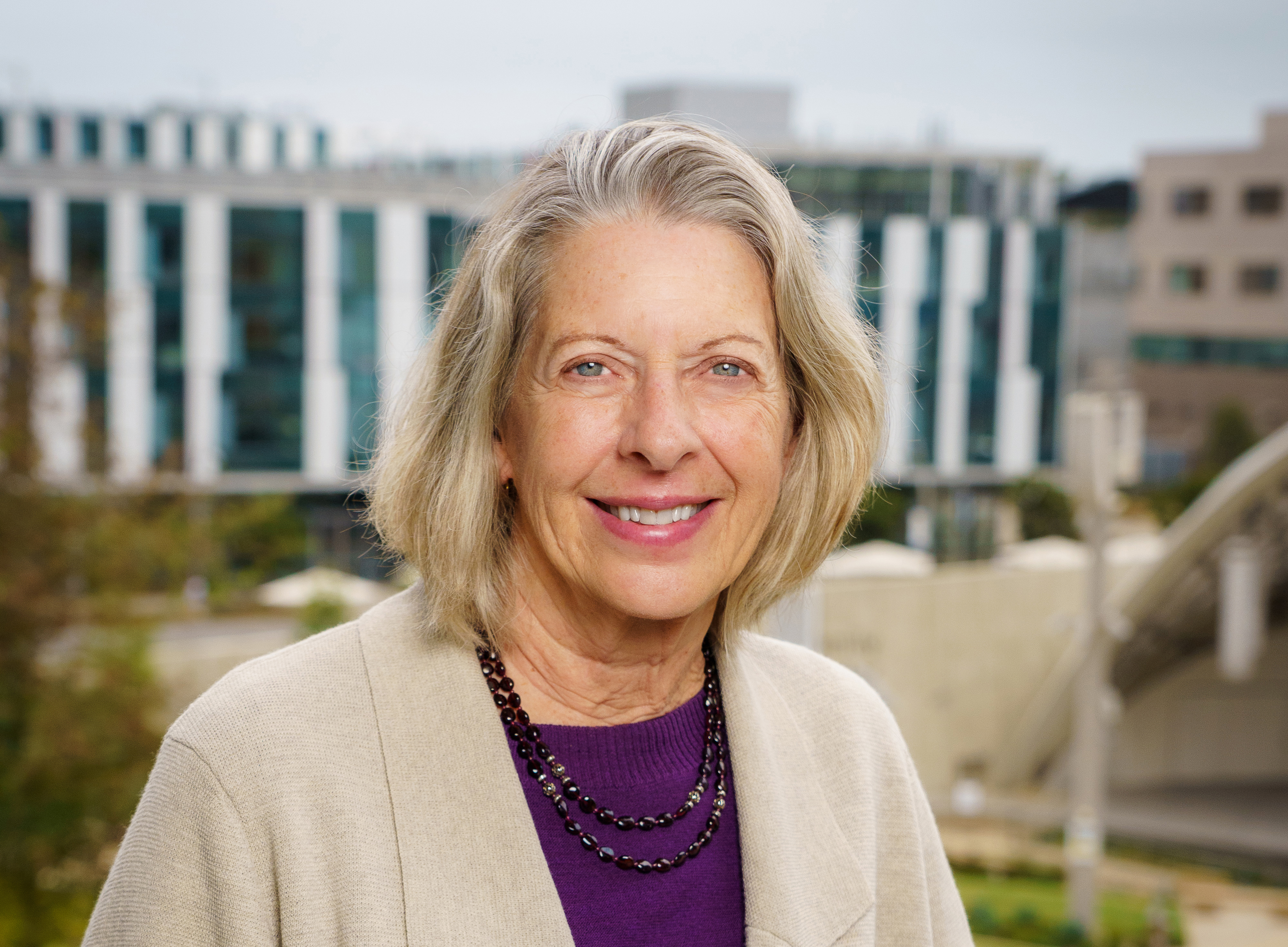
Jan Talbot is a founding member of the Department of Nanoengineering at UC San Diego, renamed the Aiiso Yufeng Li Family Department of Chemical and Nano Engineering earlier this year. Her research helped advance the field of nanomaterials and associated technologies. She also advanced engineering education by joining a team led by then Dean M. Lea Rudee to develop a graduate Material Science program.
Talbot joined the UC San Diego faculty in 1986 after receiving her doctorate in chemical engineering and materials science from the University of Minnesota. She was the first woman faculty in what was then the Department of Applied Mechanics and Engineering Sciences. Talbot served as chair of the Academic Senate and of the Committee on Committees at UC San Diego and later as Chair of the Committee on Committees for the UC system. She also served as associate dean for faculty affairs and welfare at the Jacobs School of Engineering and as president of the Electrochemical Society.
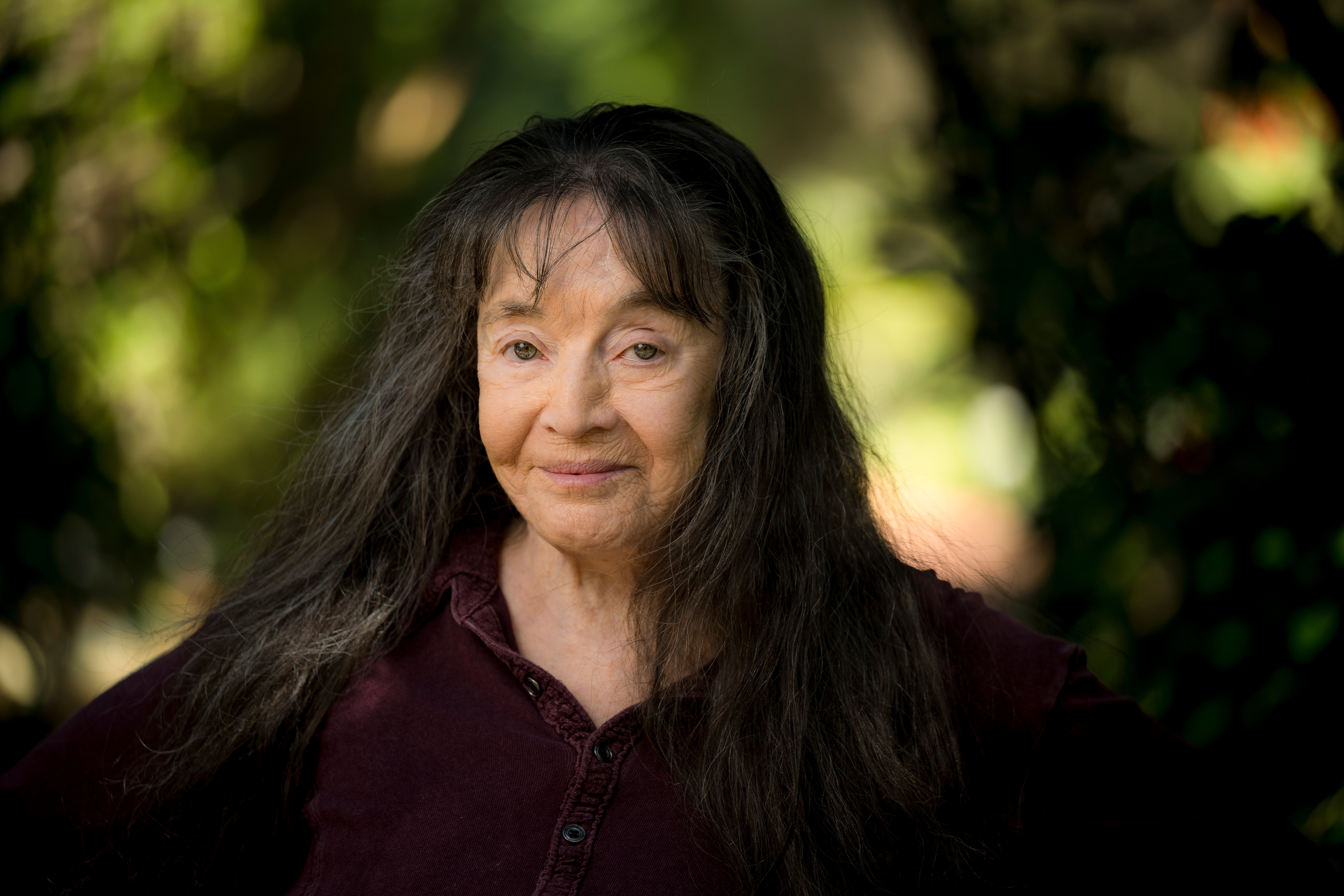
One of the world’s leading feminist artists, Eleanor Antin has played a pivotal role in shaping conceptual, feminist and performance art in America and abroad over the last six decades. She joined UC San Diego’s Department of Visual Arts as a founding faculty member in 1973 and led the development of an innovative MFA program that has prepared generations of artists for success—such as noted alumni Yolanda López, Martha Rosler and Carrie Mae Weems. One of the department’s most sought-after instructors, Antin promoted freedom for students seeking to traverse both the studio and performance space in what became one of the first visual arts programs to offer a performance focus. Professionally Antin has earned numerous accolades for her work, including a Guggenheim Fellowship and a College Art Association’s Lifetime Achievement Award. She has been recognized through solo exhibitions at prestigious institutions such as the Los Angeles County Museum of Art, the Jewish Museum and the Museum of Modern Art, as well as conducted performances across the globe, from the International Art Exhibition at the Venice Biennale in Italy to the Sydney Opera House in Australia.
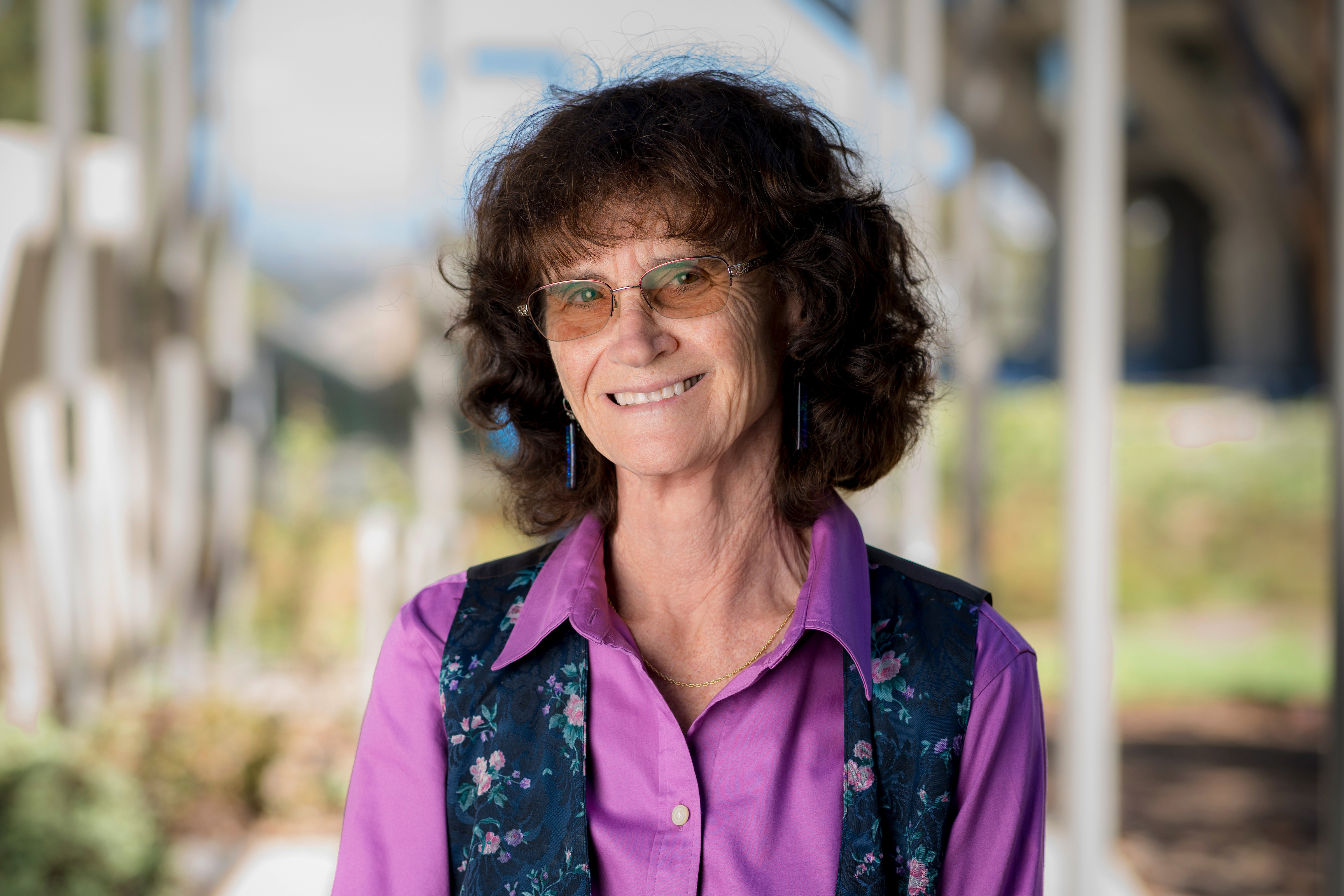
Marta Kutas – who served for a remarkable 12 years as chair of UC San Diego’s Department of Cognitive Science, the world’s first department of its kind – loves to play with words as much as she loves to work with them. A renowned researcher of the brain processes involved in language comprehension and meaning construction, Kutas is also a poet, with a penchant for turning some of her scientific insights into rhymed stanzas. Credited with a long list of papers cited more than 60,000 times, Kutas is perhaps best known for co-discovering the N400, a default brain response recorded at the human scalp that peaks around 400ms after the onset of any potentially meaningful item such as a written, spoken, signed or depicted word. Since its discovery in 1980, the N400 has been used in more than 20,000 research articles worldwide. Kutas’ lab also studied how both typical and atypical people learn and remember and make decisions. Kutas, who directed the Center for Research in Language at UC San Diego for nearly 20 years, in addition to running her own lab and serving as chair, received distinguished career contribution awards from the Society of Psychophysiological Research in 2007 and the Cognitive Neuroscience Society in 2015. In 2018, she was elected a member of the American Academy of Arts and Sciences.
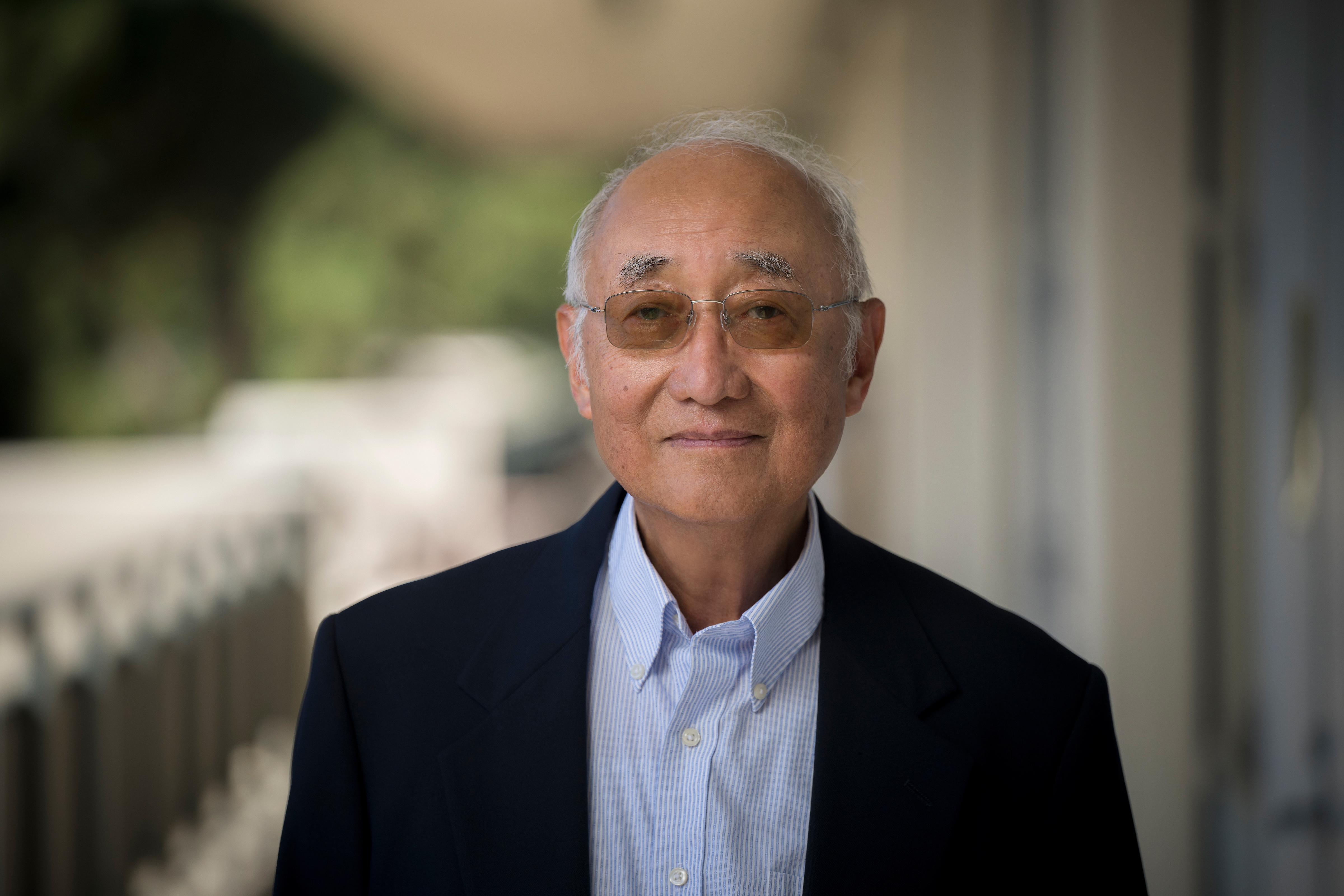
Lu Jeu Sham is a world-renowned theoretical physicist whose Kohn-Sham equation laid the foundation for density functional theory (DFT). This theory has had long-lasting implications across science and medicine, particularly in new materials design and drug discovery. Sham, a Professor Emeritus of Physics, first came to UC San Diego in 1963 as a postdoctoral scholar. During his time at UC San Diego, Sham worked with many notable researchers, including Walter Kohn, creating the famous Kohn-Sham equation. This made computations of complex material properties possible, accounting for both the structural effect and the mutual electron interaction. The equation offered a close estimation by computation, thus transforming the way quantum materials research was performed. In addition to his groundbreaking physics research, Sham also served as chair of the Department of Physics and dean of the Division of Physical Sciences. He is a member of the National Academy of Sciences and Academia Sinica, Taiwan. Among his many distinguished accomplishments, he has been named a Guggenheim Fellow, a Bernd T. Matthias Scholar and fellows of American Physical Society, American Association for the Advancement of Science, and the Optical Society of America. He also received a Lamb Medal for Laser Science and Quantum Optics.
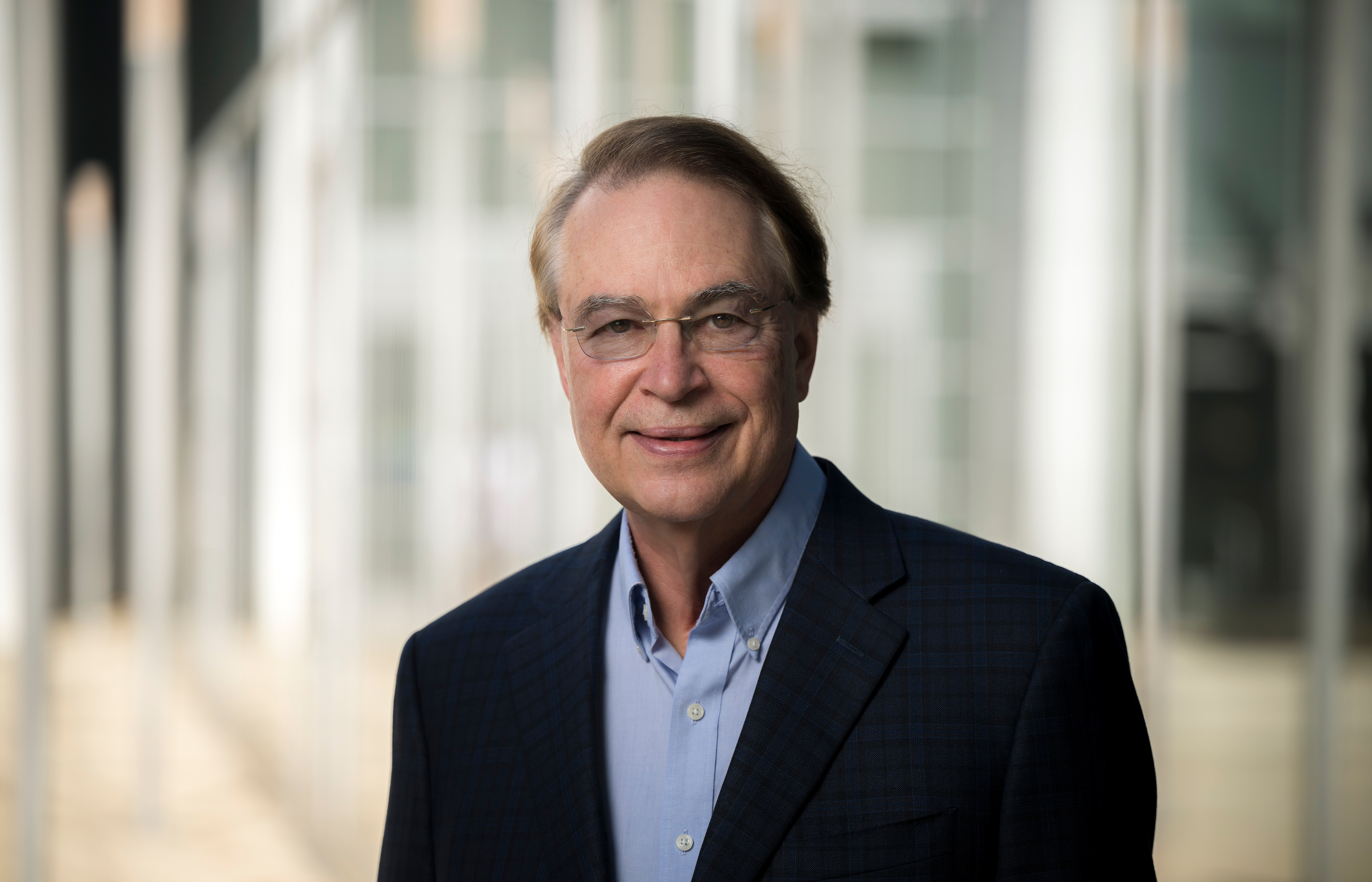
Distinguished Professor Emeritus Larry Smarr, whose expertise spans astrophysics, computation, AI and biology, joined the UC San Diego Department of Computer Science and Engineering in 2000. Later that year he became the founding director of the California Institute for Telecommunications and Information Technology, a partnership between UC San Diego and UC Irvine. In the following two decades, before his retirement in 2020, Smarr grew the two-campus institution into a collaborative discovery enterprise that engaged hundreds of faculty, staff, students and companies. Calit2 illustrates Smarr’s guiding principle: public higher education institutions serve the public good and the community that surrounds them. Over the years, the research institute engaged in many public-facing efforts, including carrying out R&D for CAL FIRE and providing access to advanced technologies for local and regional companies. Over the last 20 years, Smarr also served as principal investigator on four National Science Foundation research grants, designing and deploying NSF’s largest distributed academic AI/Machine Learning Big Data cyberinfrastructure in the United States. In the last decade Smarr has become a pioneer in the quantified-self movement, including personalized surgery. Smarr’s commitment to public service extends to stints on President Clinton’s Information Technology Advisory Committee, the Advisory Committee to the director of the National Institutes of Health–serving three directors–and the Advisory Council to four NASA Administrators. He also was the founding director of the National Center for Supercomputing Applications in 1985 at the University of Illinois, Urbana-Champaign.
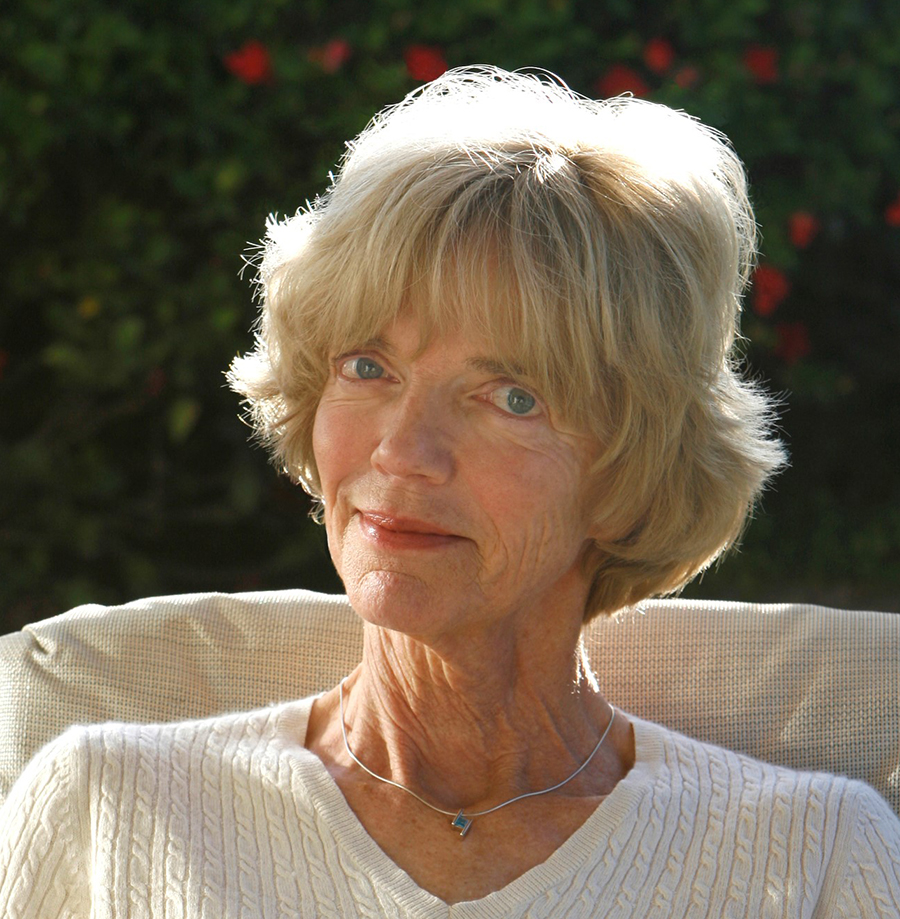
Watch the Pat Churchland video
A pioneer in the fields of Philosophy of Neuroscience and Philosophy of Neuro-ethics, Pat Churchland continues to enjoy an exemplary international reputation, with research that is revered in both disciplinary and interdisciplinary contexts. During her time on campus, she was easily one of the most visible and influential humanities investigators on the entire faculty, and was appointed an adjunct professor at the Salk Institute in 1989, a position she holds today. With a deep service commitment to UC San Diego for nearly 30 years — most notably as extended time as chair for the Department of Philosophy during key faculty and university growth — Churchland’s generous open-door policy welcomed not just faculty colleagues and students, but staff as well: a policy, she said, that gave everyone equal access to help advance the initiatives of the university. Named a MacArthur Fellow in 1992 and awarded the title of President’s Professor of Philosophy in 1999, Churchland remains very active with UC San Diego, working with the Institute for Neural Computation, the Center for Academic Research and Training in Anthropogeny, and the Swartz Center for Computational Neuroscience.
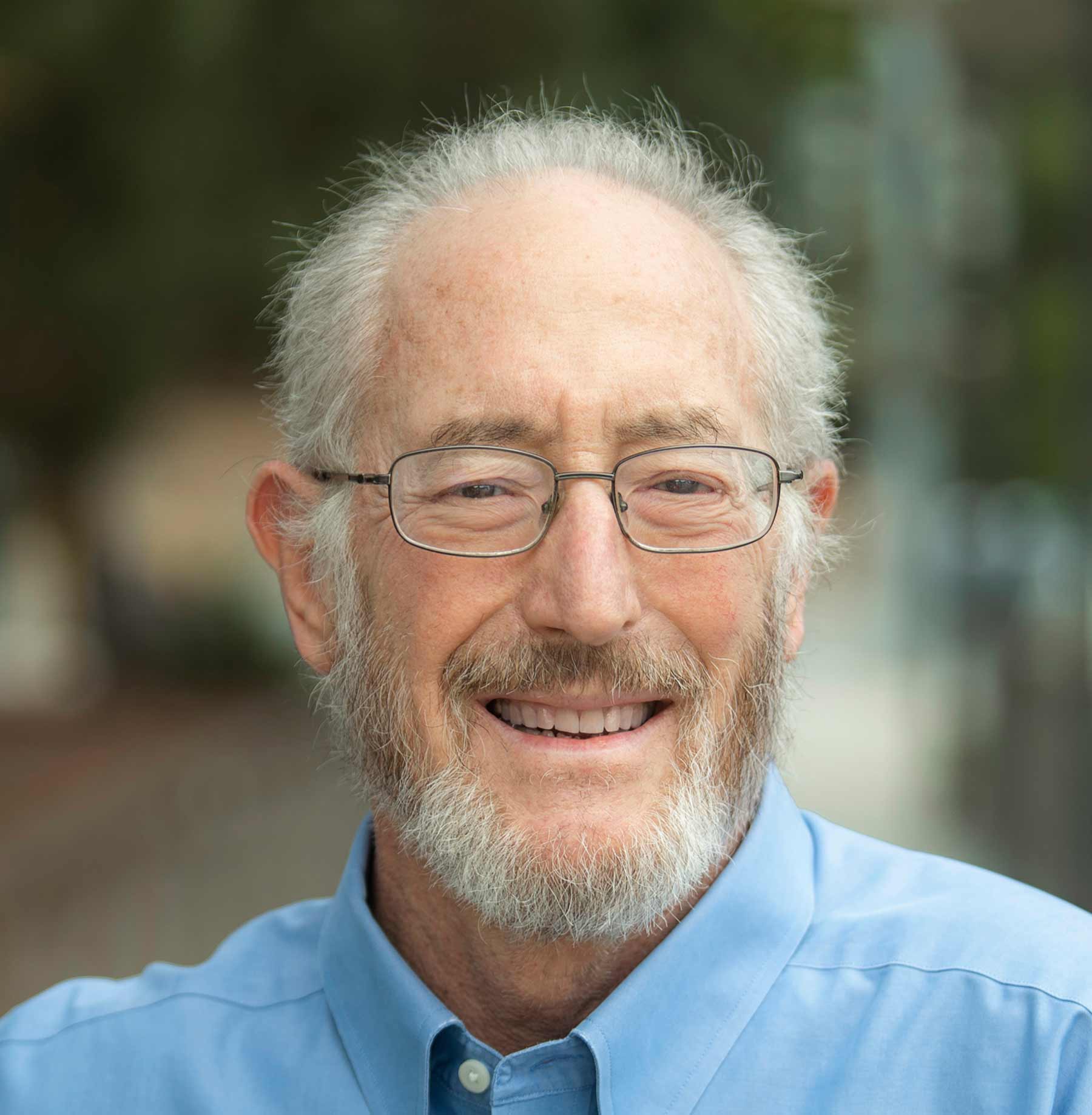
Watch the Lawrence S.B. Goldstein video
Lawrence S.B. Goldstein is a global leader and pioneer in the fields of cell biology, genetics and neuroscience. He first came to UC San Diego as an undergraduate biology student and returned 17 years later as a faculty member in the School of Medicine. His research examines the molecular mechanisms of movement inside brain cells and how failures in movement in the systems may lead to neurodegenerative diseases. His laboratory has discovered important links between transport processes and diseases such as Alzheimer’s and Huntington’s diseases. Under Goldstein’s leadership, the university established the UC San Diego Stem Cell program, the Sanford Consortium for Regenerative Medicine and Sanford Stem Cell Clinical Center. He has been active in national science policy, serving on several public scientific advisory committees and testifying in the U.S. House of Representatives and the Senate about NIH funding and stem cell research. He is a recipient o f the Public Service Award from the American Society for Cell Biology and has a public policy fellowship program named for him by the International Society for Stem Cell Research. He is a member of the National Academy of Sciences, a fellow of the American Academy of Arts and Sciences and a board member for the California Institute for Regenerative Medicine, which provides guidance on the State of California’s stem cell policies and secures funding in support of stem cell research, training and infrastructure.
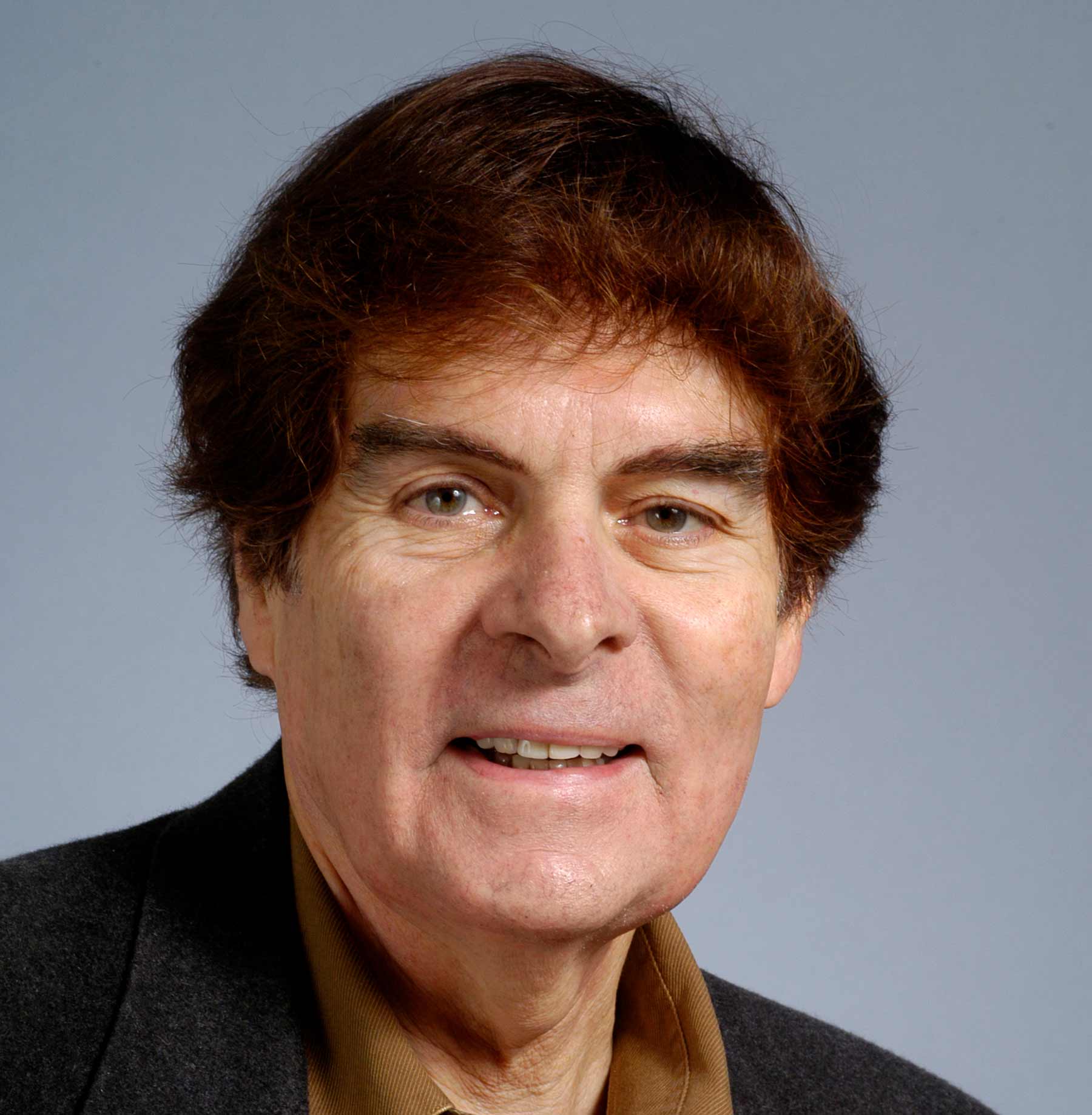
Bridges, buildings, tunnels and other civil infrastructure are safer in the face of earthquakes and blasts thanks to the contributions of structural engineer Gil Hegemier. He joined the UC San Diego faculty in 1966, and his leadership and vision were critical for establishing the campus' world-leading Powell Laboratories. In these large-scale research labs, UC San Diego engineers developed and tested new seismic safety technologies that currently protect many of California's highway bridges. Hegemier and the colleagues he recruited to UC San Diego served as the intellectual foundation for today's world-renowned Department of Structural Engineering. Hegemier's own research includes critical contributions to innovative fiber-reinforced composite materials that are currently in use to make bridges and buildings safer during and after earthquakes and blasts. He also led the creation of a one-of-a-kind blast simulator on campus. The people and places of California, and well beyond, are far safer in the face of earthquakes and blasts thanks to Hegemier's efforts to build world-class research infrastructure at UC San Diego; to turn original research into building code updates; and to educate future generations of engineers.
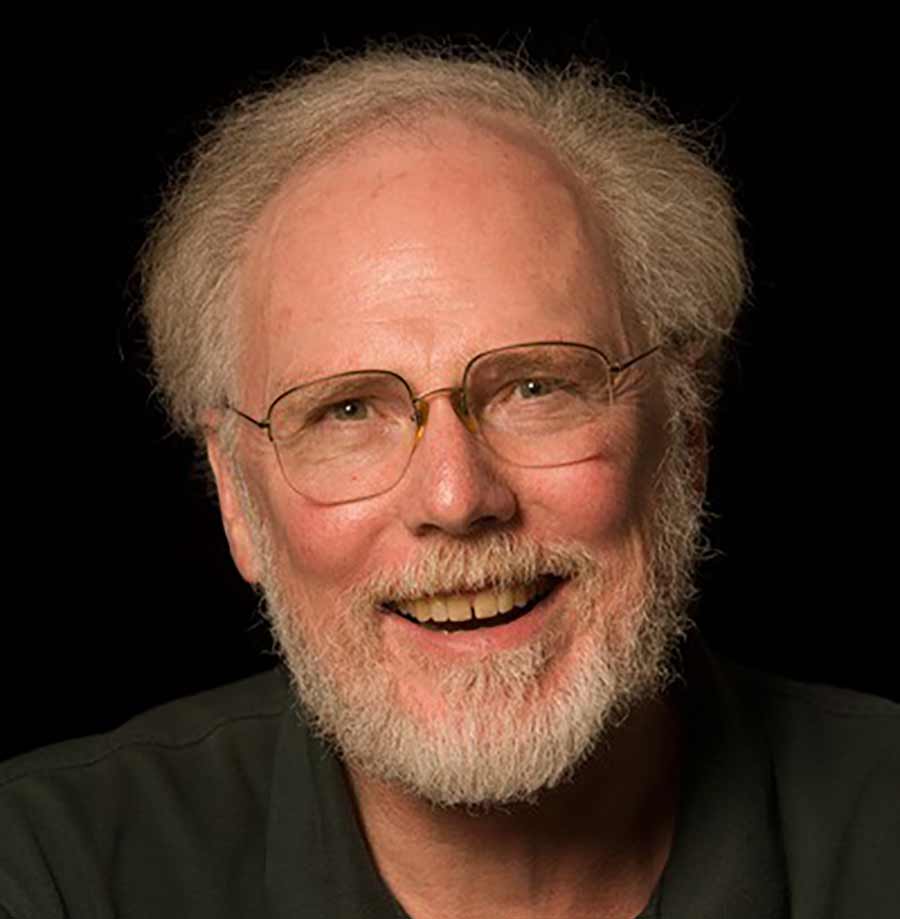
Watch the J. Andrew McCammon video
A world-renowned expert in computational and theoretical molecular biophysics, J. Andrew McCammon came to UC San Diego in 1995 with a joint appointment in the School of Physical Sciences and School of Medicine. He is best known for inventing theoretical methods for predicting and interpreting molecular recognition and rates of reaction in chemical systems, which have played a significant role in drug discovery and the development of other therapeutics. His work using molecular dynamics simulations and computer-aided drug design to study HIV target proteins led to the to the development of the widely prescribed HIV-1 protease inhibitor Viracept (nelfinavir) by Agouron Pharmaceuticals (now Pfizer Global Research and Development La Jolla) and subsequently led to the discovery of Isentress (raltegravir), the first in a new class of antiviral drugs by Merck & Co. He is a member of the National Academy of Sciences and fellow of the American Academy of Arts and Sciences , the American Association for the Advancement of Science and the Biophysical Society. In addition to his prolific research career, McCammon is a dedicated educator and mentor with more than 80 of his former students and postdoctoral researchers successfully gaining tenure-track positions at leading universities and colleges.
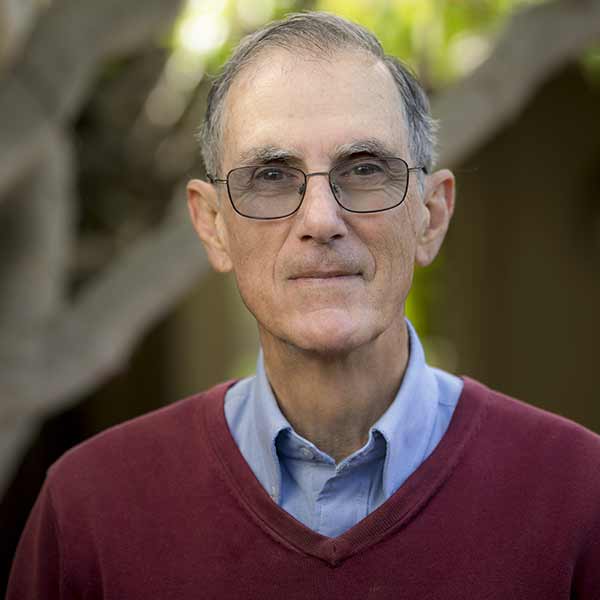
Watch the Richard Attiyeh video
Dick Attiyeh’s service to the university began when he first joined the fledgling Department of Economics as a faculty member in 1967, helping to build the department into the powerhouse it is today. Since then, his service has extended for more than five decades, most notably as vice chancellor for Research and dean of Graduate Studies from the 1980s to the mid-2000’s. During his administrative tenure, a remarkable 23 new graduate programs were established across the campus and he was instrumental in the establishment of several professional schools. A champion of graduate students, Attiyeh also served on UC-wide committees that led to major improvements in how students were funded. Following retirement in 2006, he has continued to serve as a leader in emeriti associations, both on campus and system-wide. Attiyeh focused his own research work in macroeconomics and the economics of education, demonstrating the efficacy of self-paced learning when it’s properly designed.
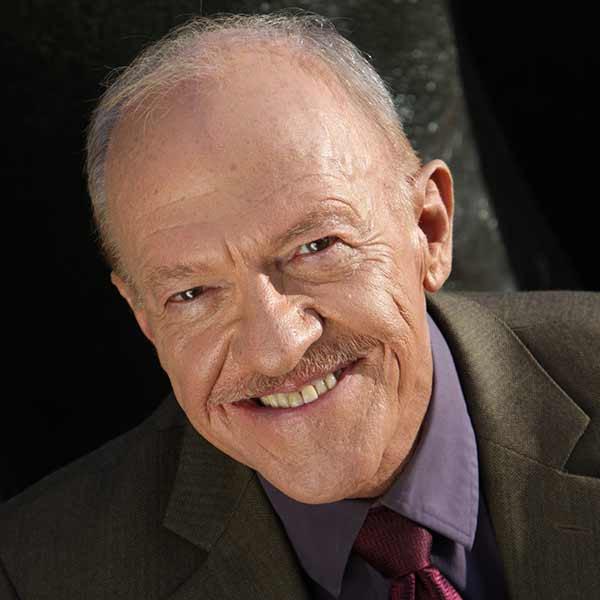
Watch the Wayne A. Cornelius video
A world-renowned expert on immigration policy and Mexican studies, Wayne A. Cornelius was the founding director of two internationally respected, interdisciplinary research centers: the Center for U.S.-Mexican Studies and the Center for Comparative Immigration Studies, which helped to put UC San Diego on the global map in both fields. He authored, co-authored or edited over 300 publications and is a frequent contributor to national and international news media. He advised presidential candidates Pete Buttigieg and Joe Biden on immigration issues. Cornelius did field research with his students annually from 1976 through 2015 and served as founding director of UC San Diego’s nationally recognized Mexican Migration Field Research and Training Program. In 2012, Mexican President Felipe Calderón awarded him the Order of the Aztec Eagle, Mexico’s highest decoration for foreign citizens. He also received the Latin American Studies Association’s Kalman Silvert Award for Lifetime Achievement, and the University of California’s systemwide Constantine Panunzio Award for distinguished post-retirement service.
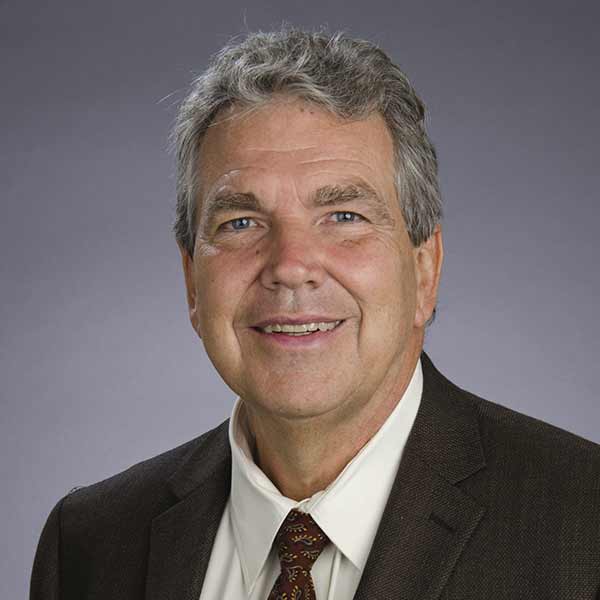
Watch the Peter F. Cowhey video
An expert on the future of communications and information technology markets and policy, Peter Cowhey joined the faculty of UC San Diego in 1976 and went on to serve as dean of the School of Global Policy and Strategy (GPS) for nearly two decades. Under his tenure, the school has expanded its influence to become one of the top professional schools of international relations and public policy and shapes cutting-edge solutions for a transforming world. Beyond the classroom, for the last five decades he has held multiple UC San Diego senior leadership positions including interim executive vice chancellor for Academic Affairs and director of the UC Institute on Global Conflict and Cooperation. Cowhey also has worked for two White House administrations where he helped shape the country’s international telecommunications and technology landscape, and has held many leadership positions in the nonprofit world including the Aspen Institute, California Council on Science and Technology, Grameen Foundation USA, La Jolla Playhouse and more.
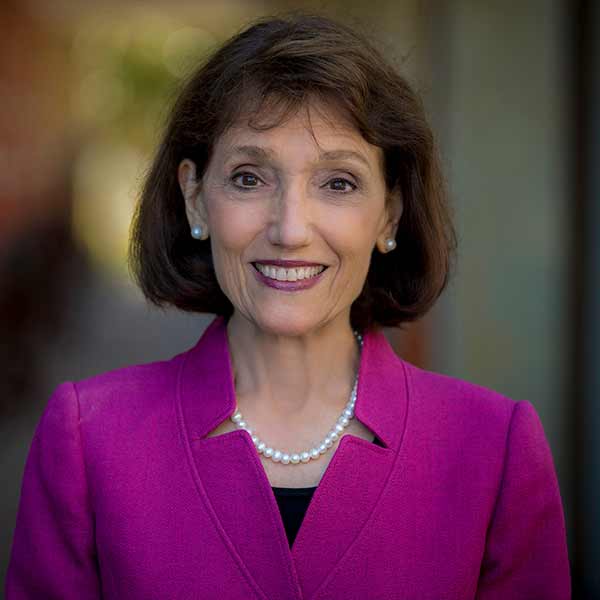
Watch the Barbara A. Parker video
Nationally recognized for extraordinary compassion, Barbara A. Parker, MD, is a board-certified medical oncologist at UC San Diego Health and professor emerita in the Department of Medicine at UC San Diego School of Medicine. Starting her career as a resident and fellow at UC San Diego, she went on to serve as medical director of oncology services and senior deputy director of Cancer Medicine at Moores Cancer Center, the region’s only National Cancer Institute-designated Comprehensive Cancer Center. Parker’s research interests are in personalized and targeted therapies for breast tumors. She has received multiple honors, including a Lifetime Achievement Award from the American Cancer Society. Parker’s legacy is marked by her mentorship and collaboration with countless colleagues across UC San Diego Health, and by the gratitude of the more than 20,000 patients she has cared for.
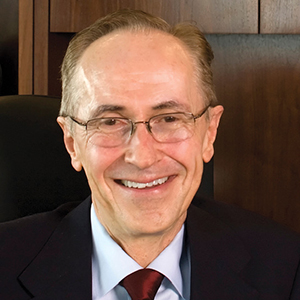
Watch the Robert Sullivan video
As the founding dean of the Rady School of Management, Robert Sullivan’s leadership, passion and vision were instrumental in building the school’s philanthropic foundation and its reputation for excellence, innovation and economic impact. During his time as dean, he led the recruitment of world-class faculty who were consistently recognized for being among the best in the world as scholars and as educators. Upon arrival at UC San Diego, he quickly launched innovation-centric MBA programs for full-time students and working professionals as well as one-year specialized masters programs in the areas of finance, business analytics and accounting. Under his leadership, the school grew to nearly 40 ladder track faculty and nearly 750 masters students in residence. Since the school’s founding, Rady School students and alumni have raised more than $2 billion in capital and started more than 180 operational companies, including six companies which have completed initial public offerings (IPOs). Sullivan also secured nearly a quarter of a billion dollars of philanthropic investments for the school.
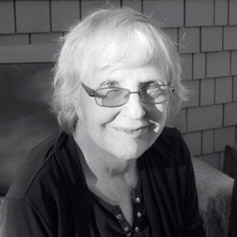
Watch the Rae Armantrout video
A faculty member at UC San Diego for over three decades, Rae Armantrout has emerged as one of the most recognizable voices in American poetry. She was a 2008 Guggenheim Fellow and recipient of the 2010 Pulitzer Prize for her 10th book of poems, “Versed,” which was also awarded the 2009 National Book Critics Circle Award. Most recently, her book “Wobble” was a finalist for the 2018 National Book Award in Poetry. She is widely recognized for her role as a founding figure in the first generation of Language Poets, an innovative group in the United States often credited with bringing the post-modern to poetry. In addition to her service to the university as a professor of literature and writing, she was instrumental in developing UC San Diego’s MFA in writing program where she is currently a member of the Emeriti Writing Faculty.
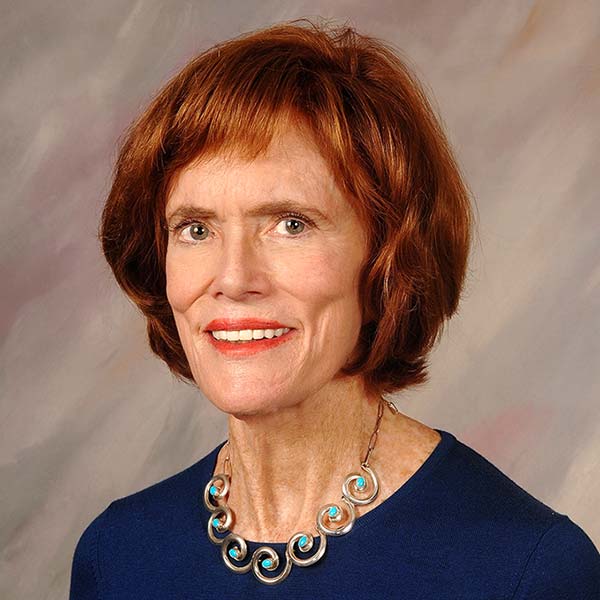
A devoted educator, scholar and administrator, Dr. Ruth Covell joined the university in 1969 as UC San Diego School of Medicine welcomed its first class of students. She has had a longstanding career on campus, retiring as associate dean of UC San Diego School of Medicine in 2013. Her accomplishments include spearheading the establishment of the Academic Geriatric Resource Center and mentoring undergraduates within the UC San Diego Emeriti Mentor Program. In 2016, she was honored with the Edward A. Dickson Award for her commitment to serving students, promoting faculty development and supporting the community. She helped establish the board of San Ysidro Health Centers and currently serves on the board of the Epilepsy Foundation, San Diego Border Area Health Education Center, Project Concern International, Mental Health America, Women’s Empowerment, La Jolla Historical Society and the National Center of Leadership in Academic Medicine program.
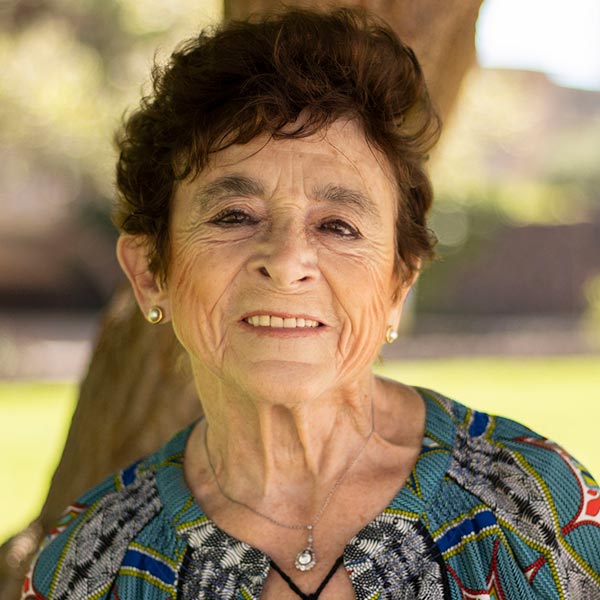
Watch the Katja Lindenberg video
Katja Lindenberg has a 50-year history on campus. Originally from Ecuador, she moved to the U.S. for higher education. After completing her Ph.D. (Cornell) and postdoc (Rochester) in physics, she joined UC San Diego in 1969. A founding faculty member of what is now Thurgood Marshall College, she rose through the ranks to serve as Chancellor's Associates Endowed Chair in the Department of Chemistry and Biochemistry. She also served on the UC’s Quinquennial Review Committee on Latino Research, the Task Force on founding of UC Merced and the Search Committee for the UC San Diego Chancellor (2011-12). An esteemed educator, she received the 2005 Academic Senate Distinguished Teaching Award and the UC Oliver Johnson Award. She retired in 2019, leaving a legacy that includes more than 400 publications and advocacy for raising the status of women and underrepresented minorities on campus, further demonstrating her extraordinary leadership.
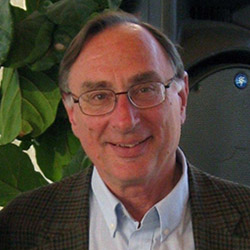
Watch the Richard Madsen video
Richard Madsen is a highly respected scholar and public intellectual who first joined the UC San Diego community in 1978. A distinguished professor of sociology, serving now as the director of the Fudan-UC Center on Contemporary China, he is credited with both being a modern-day founder of the study of Chinese religion and with helping to revive the academic discipline of sociology in China. At UC San Diego he has served as chair of the Department of Sociology, interim provost for Eleanor Roosevelt College and as part of the steering committee to establish what is now the School of Global Policy and Strategy (GPS). Madsen has authored 13 books on Chinese culture, United States society, U.S.-China relations and international relations; his 1995 book “Habits of the Heart” won the Los Angeles Times Book Award and was nominated for the Pulitzer Prize.
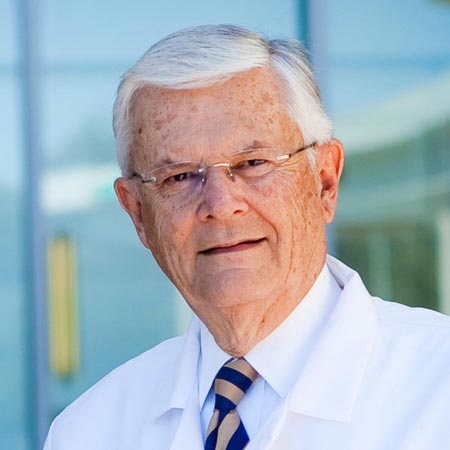
Throughout his 50 years of service to the institution, Kirk L. Peterson, M.D., has played an integral role in UC San Diego School of Medicine’s growth and its strides in cardiovascular research and clinical health care. As former director of the Sulpizio Cardiovascular Center, Peterson’s leadership and academic contributions have helped guide rising health professionals in their careers. His accomplishments include creating a first-class training program in cardiovascular medicine and authoring over 100 original articles as well as 50 review articles and book chapters. The Professor of Medicine Emeritus has held the Edith and William Perlman Chair of Clinical Cardiology for over 25 years, served as director of the Seaweed Canyon Cardiovascular Physiology Laboratory for 15 years and sat on the Journal of the American College of Cardiology editorial board. Further, he has served as a cardiology consultant for the Naval Regional Medical Center and the VA San Diego Healthcare System.
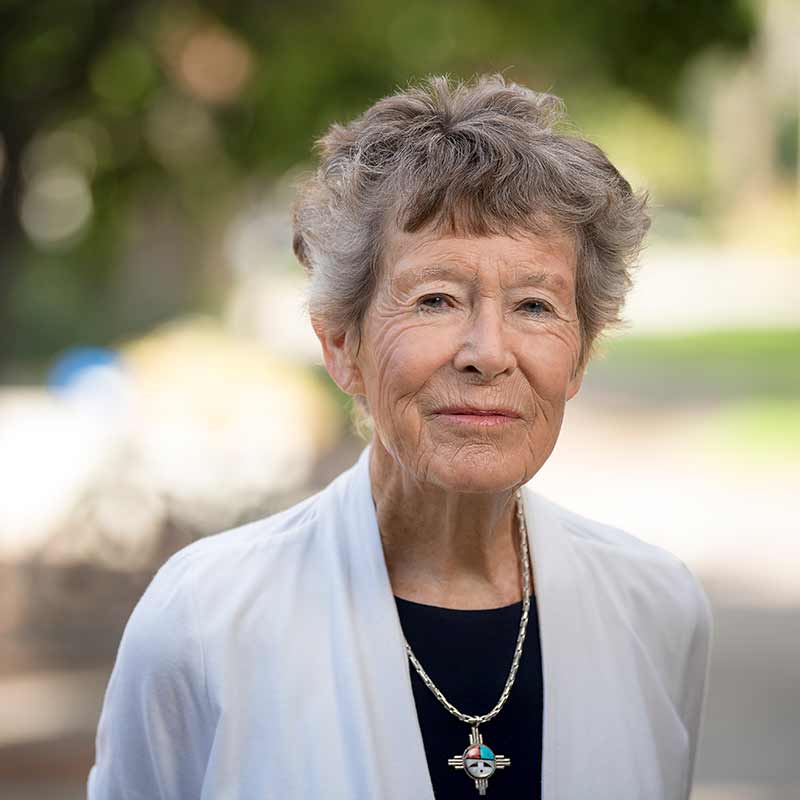
Watch the Marjorie C. Caserio video
Marjorie C. Caserio is a London-born scientist and educator who joined UC San Diego in 1990, having previously served as founding member of the UC Irvine faculty and chair of the Department of Chemistry. At UC San Diego, Caserio was vice chancellor of Academic Affairs and interim chancellor. She also headed efforts to establish an undergraduate major in connection with UC San Diego’s Scripps Institution of Oceanography, a new major in women’s studies, a new doctorate program in mathematics/science education, and the Department of Ethnic Studies.
Caserio authored four textbooks in her field, including Basic Principles of Organic Chemistry, which was the most widely used undergraduate organic chemistry textbook in the nation during the 1960s and 1970s. She remains an active participant in the Emeriti Mentor Program and has received the American Chemical Society’s Service Through Chemistry award and Francis P. Garvan–John M. Olin Medal.
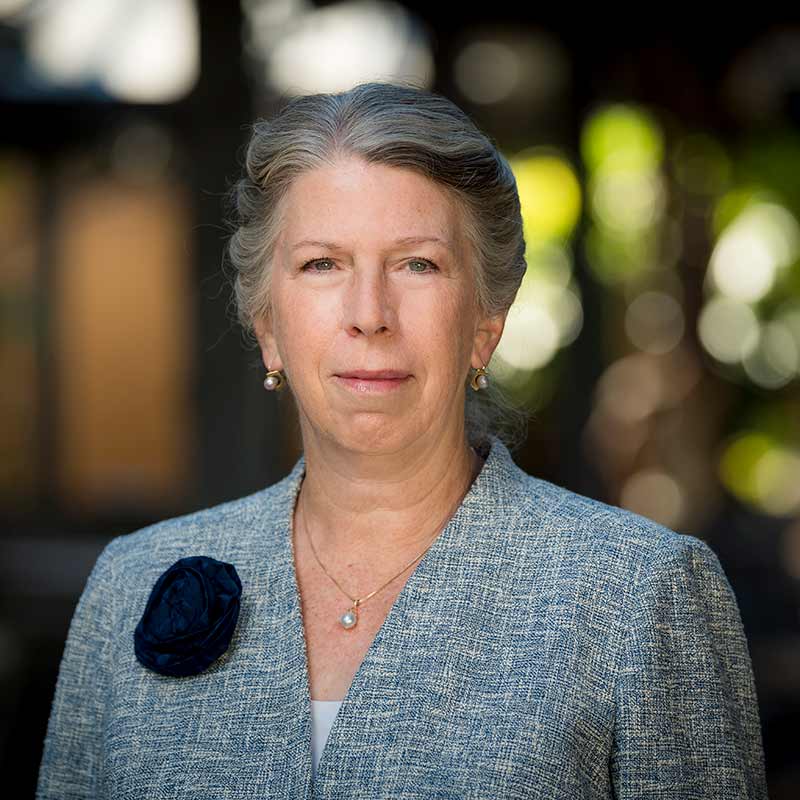
Ann L. Craig received her doctorate in comparative politics at the Massachusetts Institute of Technology and joined the UC San Diego Department of Political Science faculty in 1979. Craig’s research and publications have focused on social movements and public policy in Mexico. At UC San Diego, she served as provost of Eleanor Roosevelt College and was instrumental in integrating global education and service within the campus.
Following her retirement, Craig continued to contribute as interim provost at Revelle and Sixth Colleges, president of the Emeriti Association, chair of the Academic Senate Committee on International Education, and member of the University Committee on International Education. Craig is also active in the Emeriti Mentor Program and has been honored with a Dickson Award for service to students, faculty development, the emeriti, and the community.
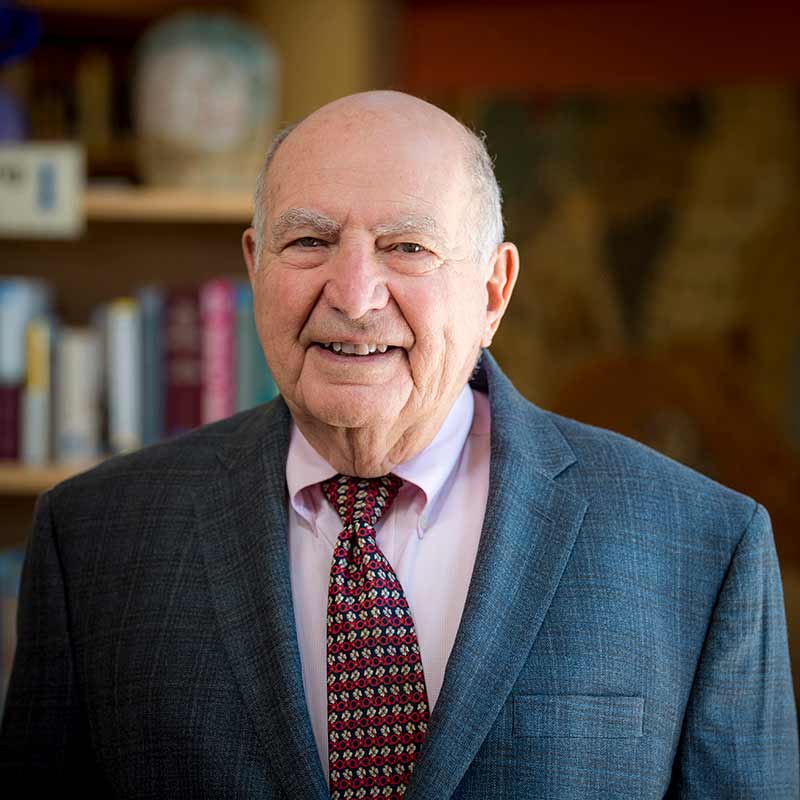
Watch the Lawrence B. Krause video
Lawrence B. Krause earned a doctorate in economics from Harvard University and was a founding faculty member of UC San Diego’s School of Global Policy and Strategy (formerly the School of International Relations and Pacific Studies) in 1986. A professor emeritus, he is one of the world’s top authorities on trade and economic issues in the Pacific region and has authored a variety of publications on the topic. Krause served as a senior member of the White House Council of Economic Advisers in the Johnson administration and has received numerous awards and honors throughout his career.
Krause is currently director emeritus of the School of Global Policy and Strategy’s Korea-Pacific Program, which he founded in 1989 to promote greater understanding of contemporary North and South Korea, including their international relations, politics, public policies, and business environments. In addition, he oversaw the annual Pacific Economic Outlook, an economic forecasting project on the Pacific region.
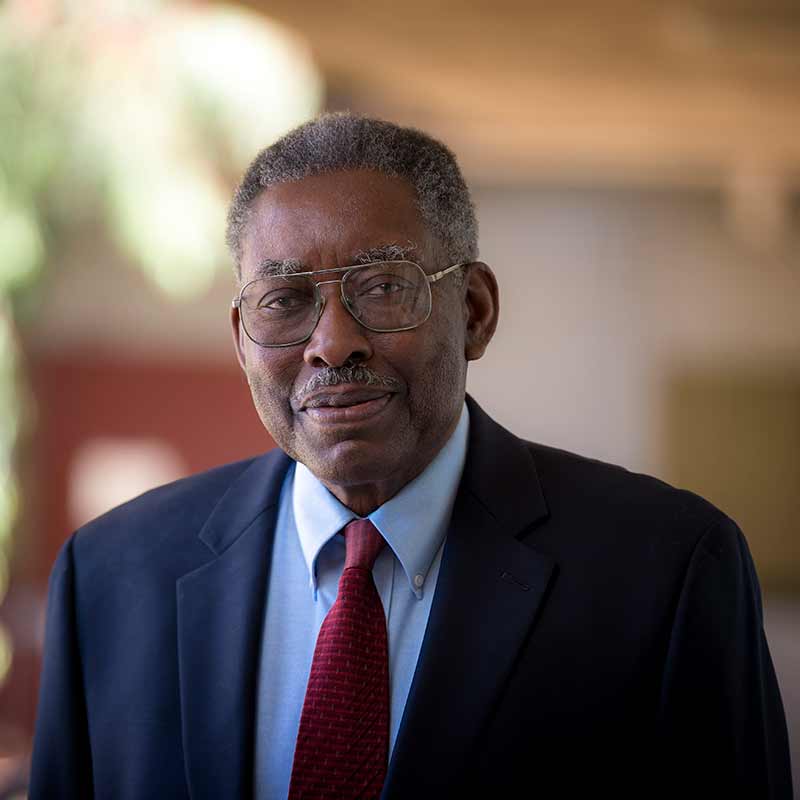
Watch the Joseph W. Watson video
Joseph W. Watson began his career on campus as an assistant professor of chemistry in 1966 and dedicated forty-one years of service to UC San Diego. He was named the first provost of Third College in 1970 and was appointed vice chancellor for Student Affairs in 1981.
Watson’s advocacy for the success of UC San Diego students was highlighted through his guidance of such transformative initiatives as the Career and Student Services Centers, the Undergraduate Research and Opportunities Abroad Programs, TritonLink, RIMAC and the North Campus Recreation Area, Price Center, and the transition from Division III to Division II athletics. Further, as a proponent of diversity and inclusion, Watson worked diligently to increase housing for transfer students and financial aid and scholarship support for low- and middle-income students.
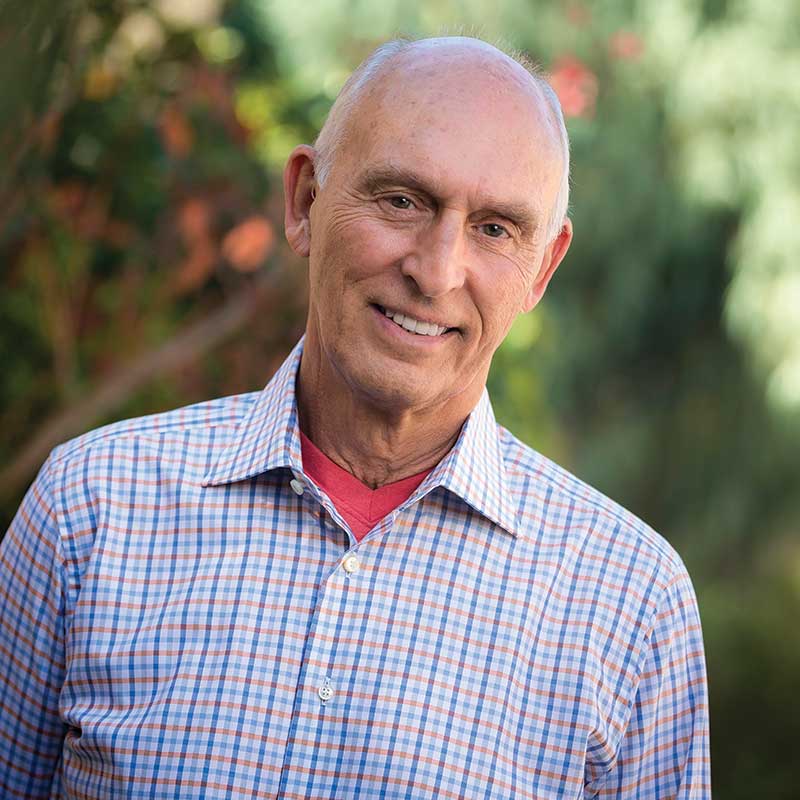
Watch the Robert W. Conn video
Robert W. Conn is credited with guiding the Jacobs School of Engineering through a transformative period of growth and recognition as its dean, positioning the school to reach and maintain the high ranking it has today. When Conn first joined the Jacobs School of Engineering in 1994, he understood that the school needed to serve as a conduit between research discoveries and the companies that could deploy them for the common good. As a result, he established the Corporate Affiliates Program on campus, as well as the William J. von Liebig Center for Entrepreneurism and Technology Advancement.
Since his retirement from UC San Diego, Conn has remained a formidable force at the nexus of research and philanthropy and currently serves as president and CEO of the Kavli Foundation.

Watch the Marye Anne Fox video
Marye Anne Fox, the seventh chancellor of UC San Diego and the first woman to be appointed as permanent chancellor, led the campus during a historic era of extraordinary growth and unprecedented financial challenges. Under her leadership, UC San Diego successfully completed a $1 billion capital campaign and celebrated its 50th anniversary, campus climate was improved, and campus programs and resources expanded at a record-setting pace to accommodate increasing numbers of students and a $1 billion research enterprise.
A world-renowned chemist, Fox is also a Distinguished Professor Emerita of chemistry at UC San Diego. She is one of the nation’s most creative physical organic chemists, having published extensively in organic photochemistry and electrochemistry. Her work has application in materials science, solar energy conversion and environmental chemistry.
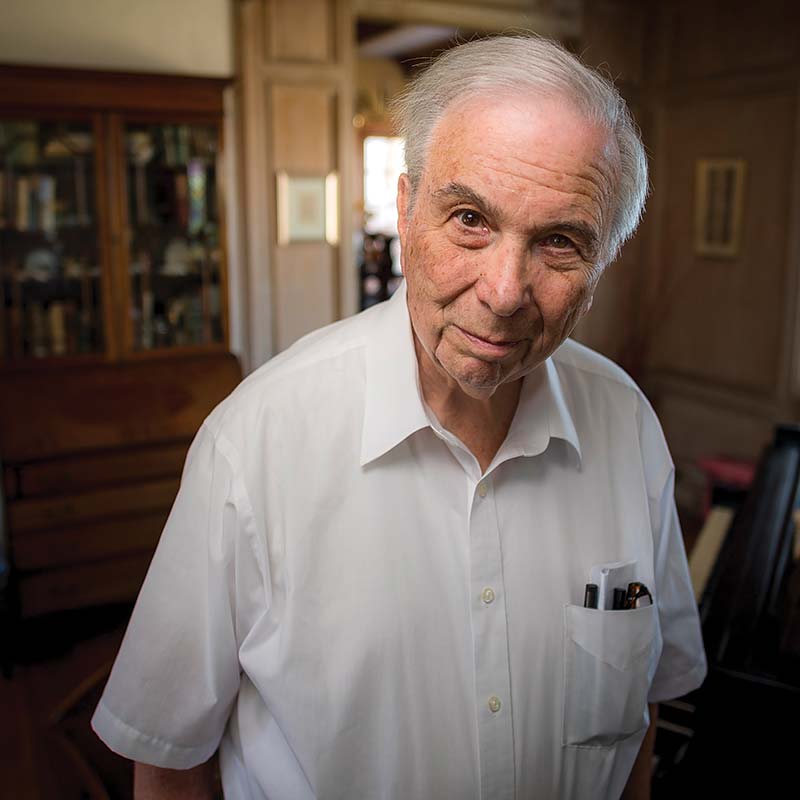
Watch the Sanford Lakoff video
In 1974, Sanford “Sandy” Lakoff joined UC San Diego as a professor and founding chair of the Department of Political Science. Under his leadership, the department quickly established high-quality undergraduate and graduate degree programs. He recruited talented faculty members who helped him lead the department’s impressive rise to become one of the best political science departments in the nation. Lakoff’s contributions laid the groundwork for the establishment of the School of Global Policy and Strategy (formerly the School of International Relations and Pacific Studies).
Throughout his years on campus, Lakoff also played a key role in establishing UC San Diego’s presence in the San Diego community, for which he was recognized with a Chancellor’s Associates’ Faculty Excellence Award for Excellence in Community Service.

John B. West, a Distinguished Professor of medicine and physiology at UC San Diego, is one of the world’s most noted physiologists, recognized for his work in respiratory physiology. His long interest in high-altitude medicine and physiology culminated in him leading the 1981 American Medical Research Expedition to Everest, during which five people reached the summit of Mount Everest and the first physiological measurements on the summit were made.
West joined the UC San Diego School of Medicine faculty in 1969 and continues to be an active faculty member. His book Respiratory Physiology: The Essentials has been translated into 15 languages and is used around the world.
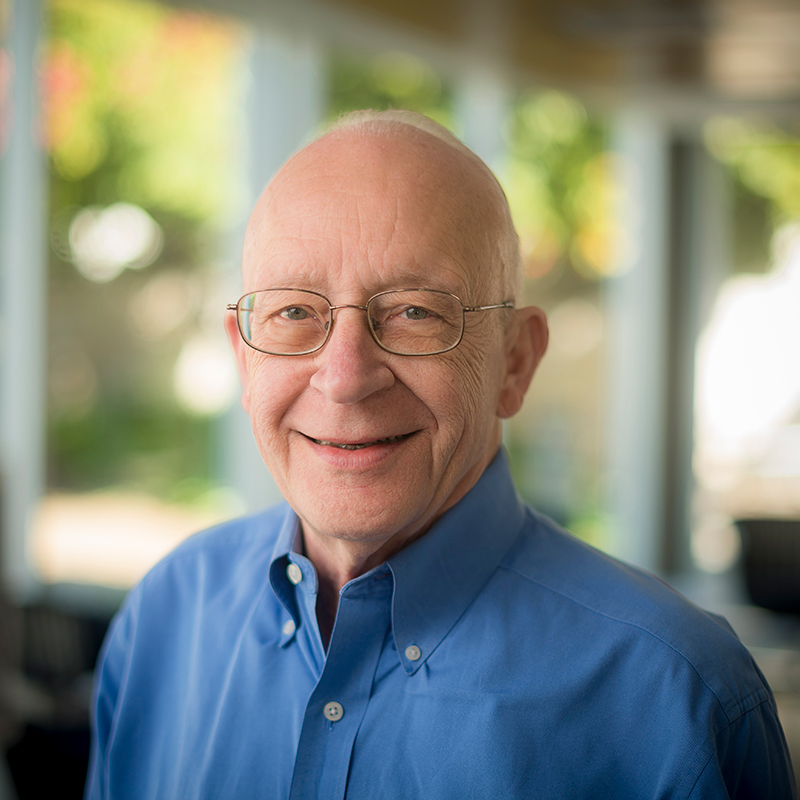
Paul Drake is a distinguished professor emeritus in political science and a widely respected leader and scholar. Under his deanship of the Division of Social Sciences, many of its departments flourished into leading national academic programs. As senior vice chancellor for academic affairs, he worked with faculty and staff to steer UC San Diego through unprecedented fiscal challenges while maintaining its excellence in research and teaching. Drake was a leader in fostering diversity campuswide, and he is a founder of The Preuss School UCSD, a nationally acclaimed charter school.
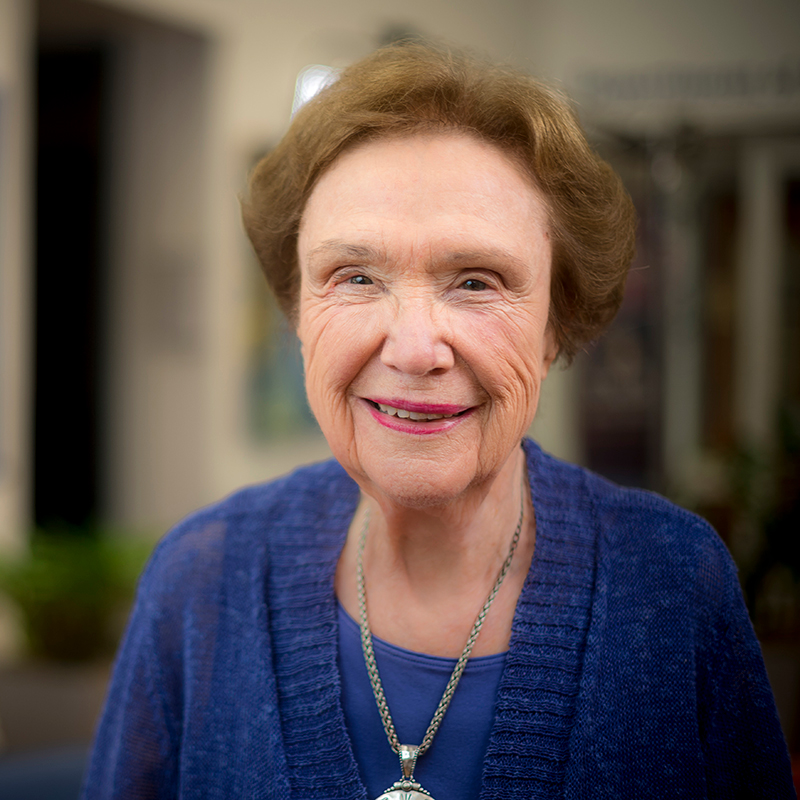
Watch the Marilyn Farquhar video
Marilyn Farquhar, distinguished professor emerita of cellular and molecular medicine, entered the field of science when female graduate students were rare. Today, her discoveries are part of the canon of cell biology. She joined UC San Diego in 1990 and served as the school’s first chair of the Department of Cellular and Molecular Medicine. She helped build the UC San Diego School of Medicine to become a top-ranked, national program. Farquhar is a founding member and former president of The American Society for Cell Biology. Her dedication to teaching and mentorship has made a powerful impact on the physicians and medical scientists of tomorrow.
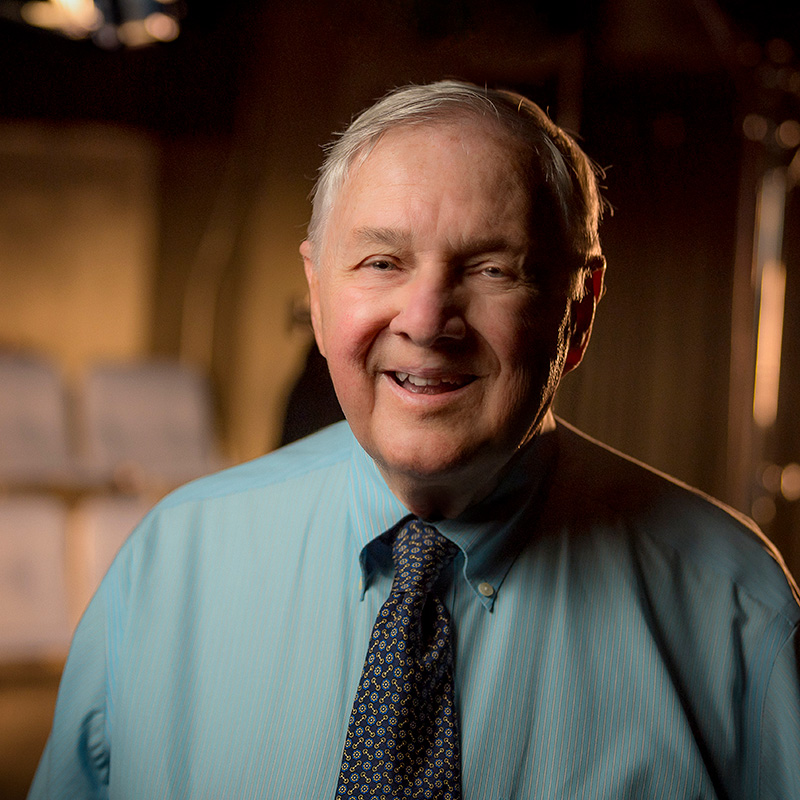
Professor Emeritus Don Helinski dedicated more than a half century to furthering UC San Diego’s mission and goals as chair of the Department of Biology and associate dean of the Division of Natural Sciences. Since retiring, he has remained involved on campus, supporting and mentoring students through the UC San Diego Emeriti Association. Helinski is widely recognized as one of the pioneers of recombinant DNA technology. His fundamental discoveries in the biology of bacterial plasmids and in the early applications of cloning technology laid the foundation for early successes in genetic engineering and biotechnology. Helinski is a Guggenheim Fellow and an elected member of the National Academy of Sciences.
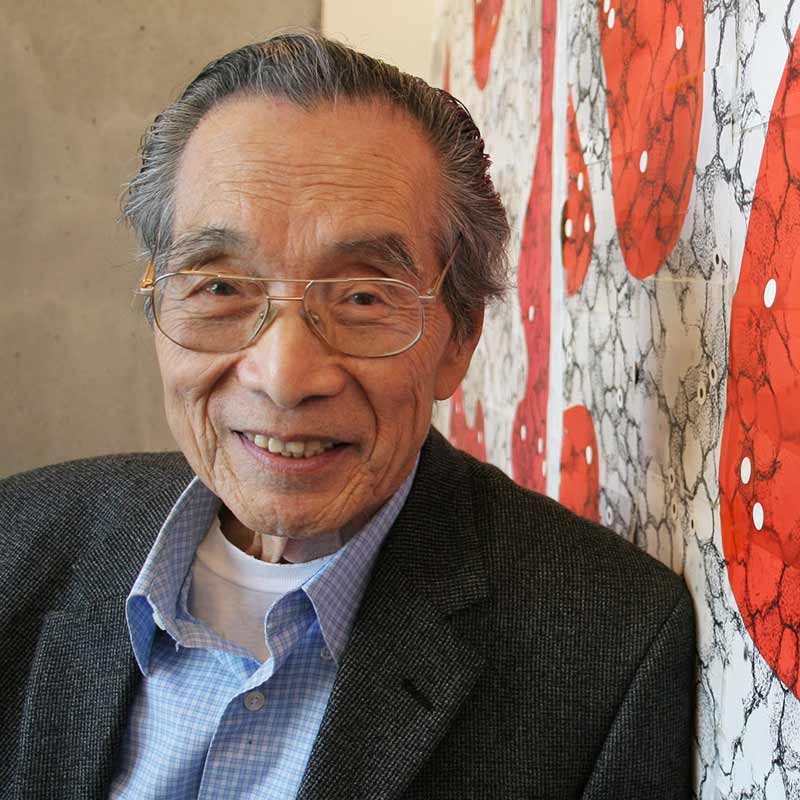
Widely considered one of the most eminent bioengineering scientists in the world, Y. C. “Bert” Fung was recruited by UC San Diego to establish the bioengineering program in 1966. Fung created the new field of biomechanics, an interdisciplinary field in which engineering principles and techniques are used to solve important biomedical problems. Decades ago, Fung had the foresight to recognize the vast potential contributions that engineering could have on medicine at a time when the two fields were entirely separated. Today, in large part due to his groundbreaking ideas, the barriers between engineering and medicine have disappeared, creating myriad innovations to benefit patients.
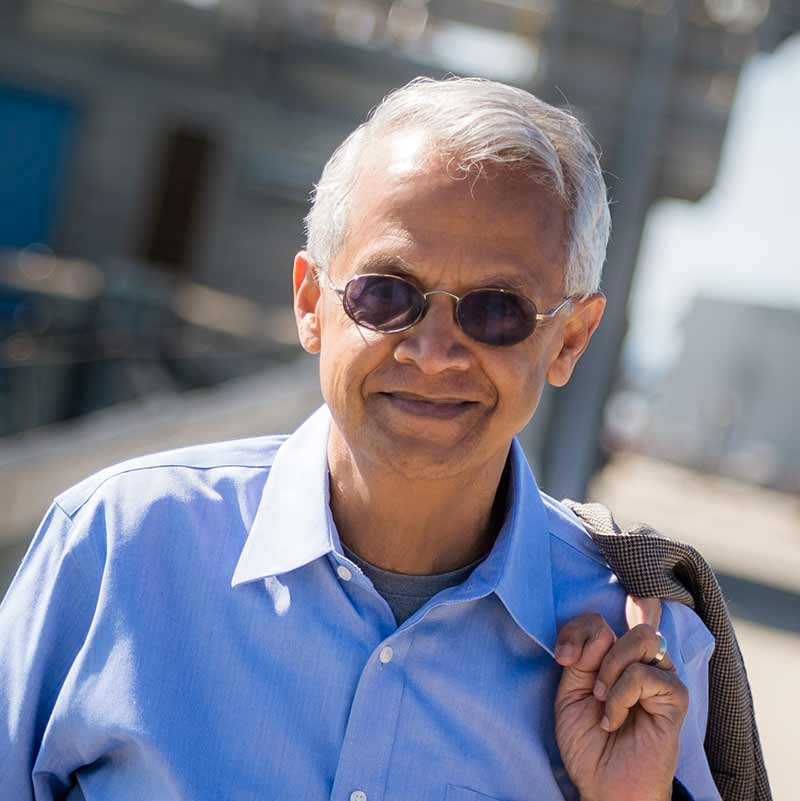
Watch the Veerabhadran Ramanathan video
Veerabhadran Ramanathan, a world-renowned climate scientist at the Scripps Institution of Oceanography, discovered the greenhouse effect of chlorofluorocarbons and showed these superpollutants to be 10,000 times more potent than carbon dioxide in warming the climate. Ramanathan then showed that curbing emissions of the short-lived climate superpollutants, black carbon, methane and hydrofluorocarbons, can cut warming by as much as 50 percent within decades. His research has led to major policy actions by President Obama, the United Nations and Governor Jerry Brown. Ramanathan is now engaging religious leaders such as Pope Francis and the Dalai Lama to educate Earth’s citizens to be good stewards of our planet.
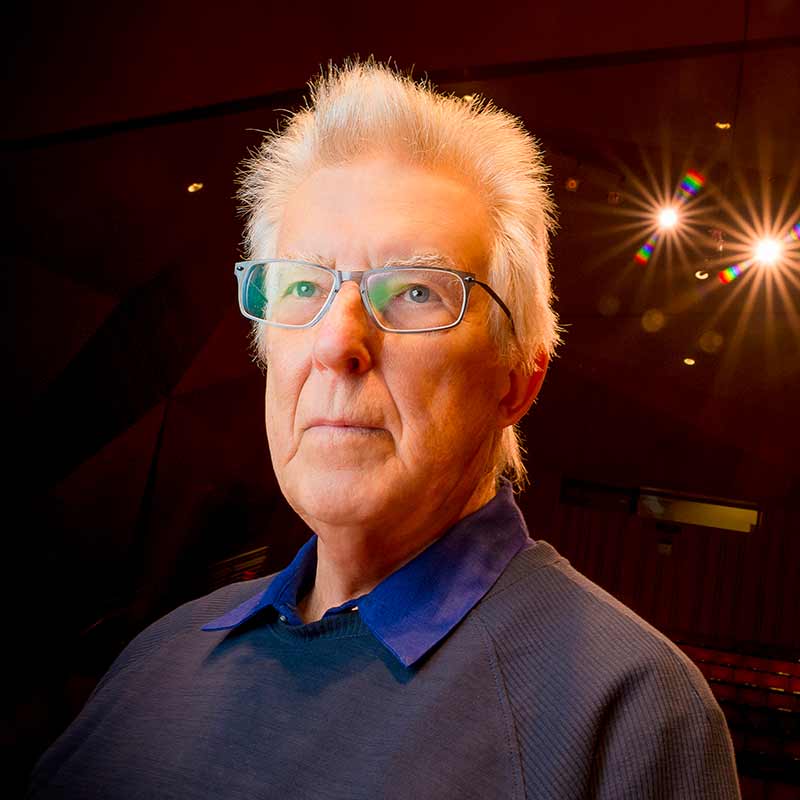
Watch the Roger Reynolds video
Composer Roger Reynolds joined UC San Diego’s music faculty in 1969 and has since mentored generations of young composers and won a Pulitzer Prize. He remains a leader in exploring ways to harness new technologies for musical purposes. His work blends elements of theatre, literature, dance, video, digital signal processing and real-time computer spatialization. Reynolds’ music has been commissioned, performed, written about and recorded around the world at venues including the Royal Albert Hall in London, the Centre Pompidou in Paris, Suntory Hall in Tokyo and Lincoln Center in New York. Reynolds was appointed University Professor in 2009, becoming the first artist to be honored with that UC-wide title.

Palmer Taylor founded the Department of Pharmacology in the School of Medicine, and the Skaggs School of Pharmacy and Pharmaceutical Sciences. He has played an instrumental role in recruiting top faculty, establishing the first basic science department in the School of Medicine, developing doctoral training in pharmacology, and providing mentorship to graduate students and postdoctoral fellows. As founding dean of the Skaggs School, he helped build the professional school to national and international prominence. Taylor’s research and interdisciplinary collaborations have accelerated drug discovery and benefited society—from developing novel antidotes to poisoning from pesticide exposure, to finding avenues for improved pharmacological treatments for central nervous system disorders associated with dementia and aging.
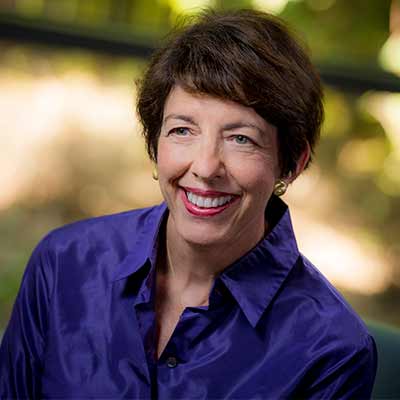
Susan Shirk is considered one of the most influential experts on Chinese politics and U.S.-China relations. She is founding chair of UC San Diego’s 21st Century China Program, the nation’s largest and most prominent academic research program on contemporary China, and helped create UC San Diego’s renowned School of Global Policy and Strategy and the top-ranked Department of Political Science. Shirk has also directed the University of California systemwide Institute on Global Conflict and Cooperation and served as deputy assistant secretary of state (1997–2000) responsible for U.S. policy toward China, Taiwan, Hong Kong and Mongolia.
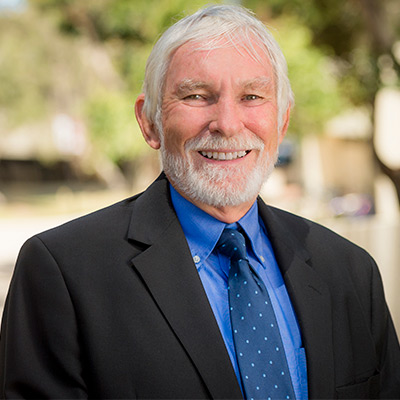
Hugh “Bud” Mehan has applied his research in sociology and education studies to make major contributions to educational reform in San Diego, helping countless students from around the county become better equipped to succeed in college. Mehan was the founding director of UC San Diego’s Teacher Education Program (now the Department of Education Studies) and the Center for Research on Educational Equity, Assessment and Teaching Excellence (CREATE), which coordinates efforts at UC San Diego to improve the academic preparation of underrepresented students in the community through partnerships with K-12 schools and districts. He also played an integral role in the establishment of The Preuss School UCSD and Gompers Preparatory Academy.
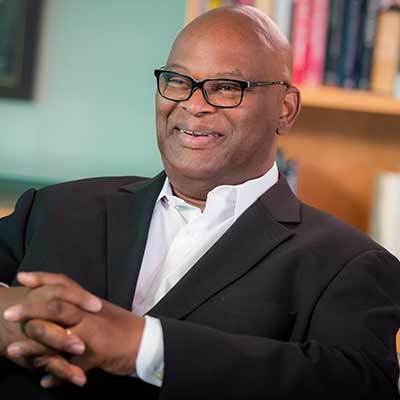
Watch the Cecil W. Lytle video
Cecil Lytle is a world-renowned classical and jazz pianist, former professor and chair of the UC San Diego Department of Music, and former provost of UC San Diego’s Thurgood Marshall College. Lytle has dedicated his life and work to providing educational opportunities for aspiring youth. He co-founded The Preuss School UCSD and played a key role working with parents, teachers and the community to establish Gompers Preparatory Academy, located in the Chollas View neighborhood of San Diego. He also established and raises funds for the Lytle Endowed Scholarship, which supports Preuss graduates who attend Thurgood Marshall College.
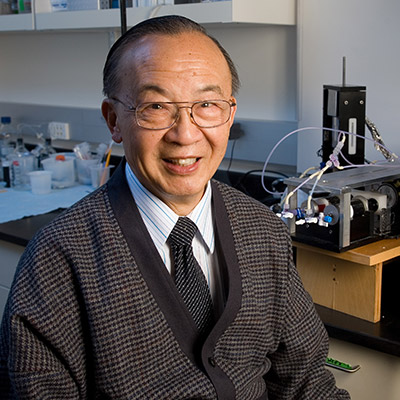
National Medal of Sciences recipient Shu Chien is a world leader in the study of how blood flow and pressure affect blood vessels. He is one of only a handful of scholars who are members of all three U.S. national institutes: the National Academy of Sciences, National Academy of Engineering and the Institute of Medicine. Chien played a crucial role in forming the Jacobs School of Engineering Department of Bioengineering, and as director of the UC San Diego Institute of Engineering and Medicine, he has strengthened collaborations between all departments of the Jacobs School, the School of Medicine and the Skaggs School of Pharmacy.
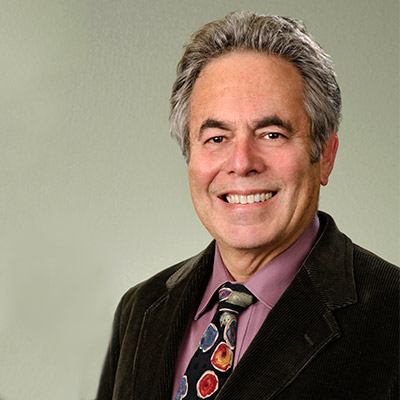
Watch the Peter Gourevitch video
Regarded as one of the most highly respected political scientists in the world, Peter Gourevitch has revolutionized the study of international relations and comparative politics by conceptualizing how the international economy shapes domestic politics and vice versa. He was elected to the American Academy of Arts and Sciences and has received distinguished fellowships and numerous awards for his research. As founding dean of the School of International Relations and Pacific Studies, Gourevitch lifted UC San Diego to the top echelons of social science research and teaching. He also played a key role in establishing The Preuss School UCSD.
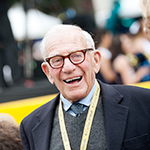
Referred to as the “greatest living oceanographer,” Walter Munk is widely recognized for his groundbreaking investigations of wave propagation, tides, currents, circulation and other aspects of the ocean and Earth. The 95-year-old scientist and alumnus is still active at Scripps Institution of Oceanography. His accomplishments have been recognized by prestigious organizations around the world, from the Kyoto Prize to the Crafoord Prize.